
Founding History
From storage halls to archive shelves: How everything began.
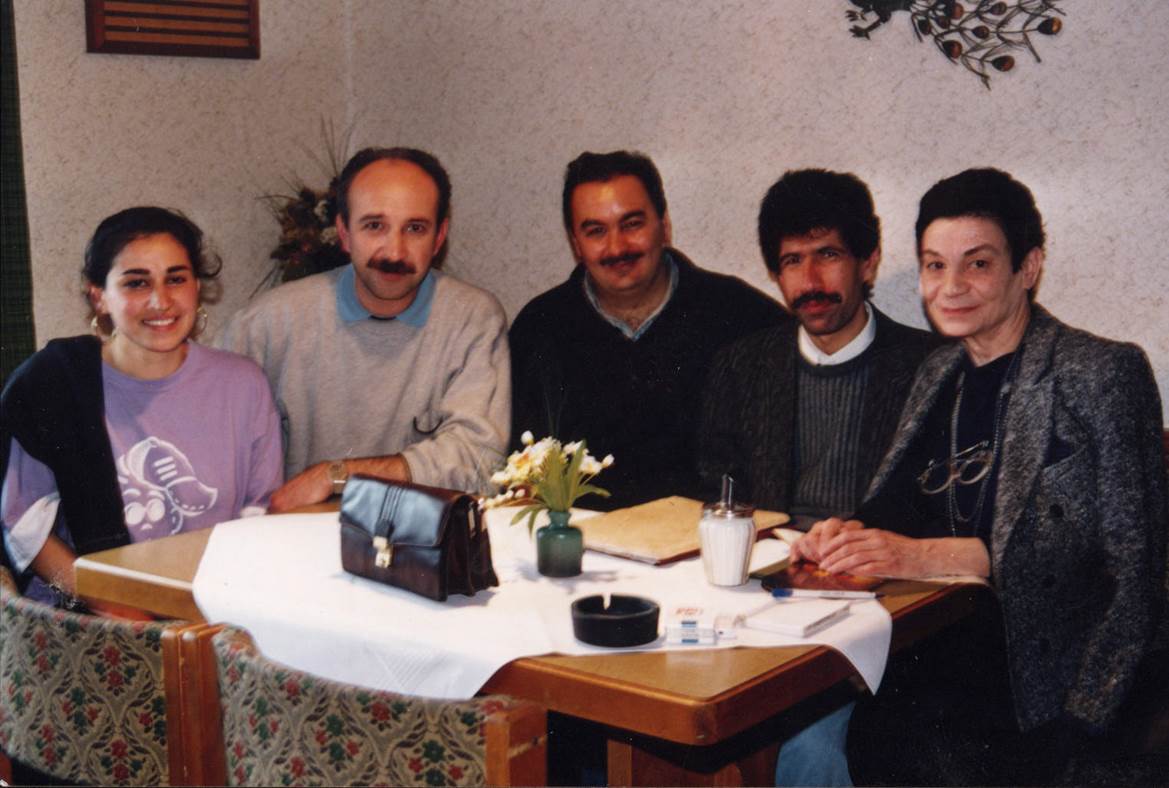
General meeting during the founding era. Foto: DOMiD-Archive, Köln
f.l.t.r. Sevtap Sezer, Aytaç Eryılmaz, Muhittin Demiray, Ahmet Sezer und Gönül Göhler
In 1990, our organization was founded and registered as a non-profit organization under the name "DOMiT—The Documentation Center and Museum of Migration from Turkey." It was founded by immigrants from Turkey, who were motivated by a glaring deficiency: neither historians nor museums nor archives were paying attention to the history of immigrants. In order to preserve the historical legacy of those immigrants, an archive was established. In 2000 the organization moved from Essen to Cologne. Today, our archive is a one-of-a-kind assemblage, which reflects the social, cultural and everyday history of immigration to Germany. At the same time, our founders strove for the creation of a central museum of migration in Germany – a goal we continue to pursue today.
In 2007, DOMiT united with the registered association "Museum of Migration in Germany" (Migrationsmuseum in Deutschland e.V.) another group, whose members advocated a central museum for migration history. This merger brought together migrants from diverse places of origin, as well as Germans with no personal migration background. With this change, we sought a new name to better reflect the organization's composition and the collection's content, which was expanded to include all immigrant communities in Germany. Because the name DOMiT was fairly well-recognized, the members decided to change the name only slightly, to DOMiD—"Dokumentationszentrum und Museum über die Migration in Deuschland." Thus we became the "Documentation Center and Museum of Migration in Germany."
DOMiT/DOMiD Timeline 1990 -2010
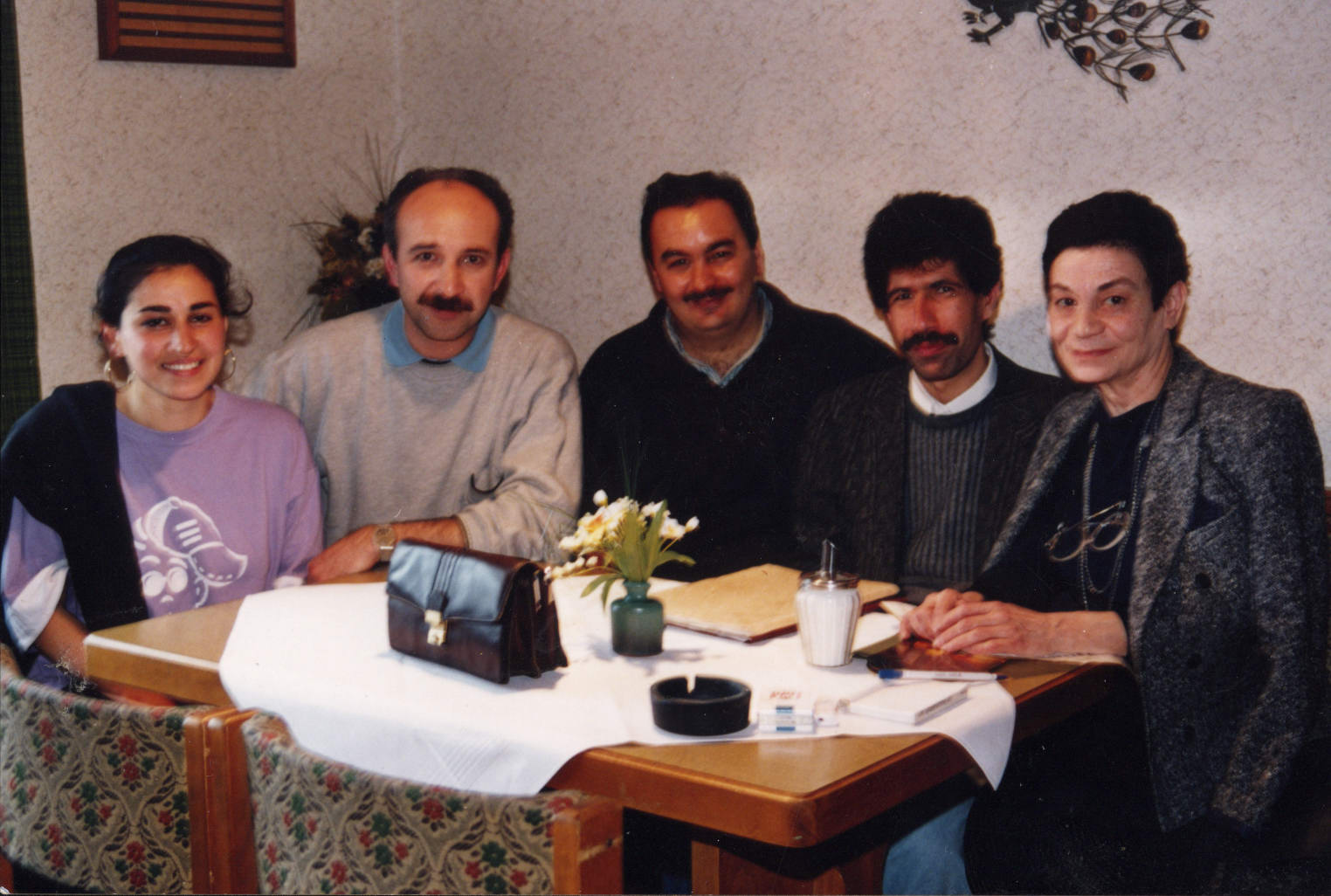
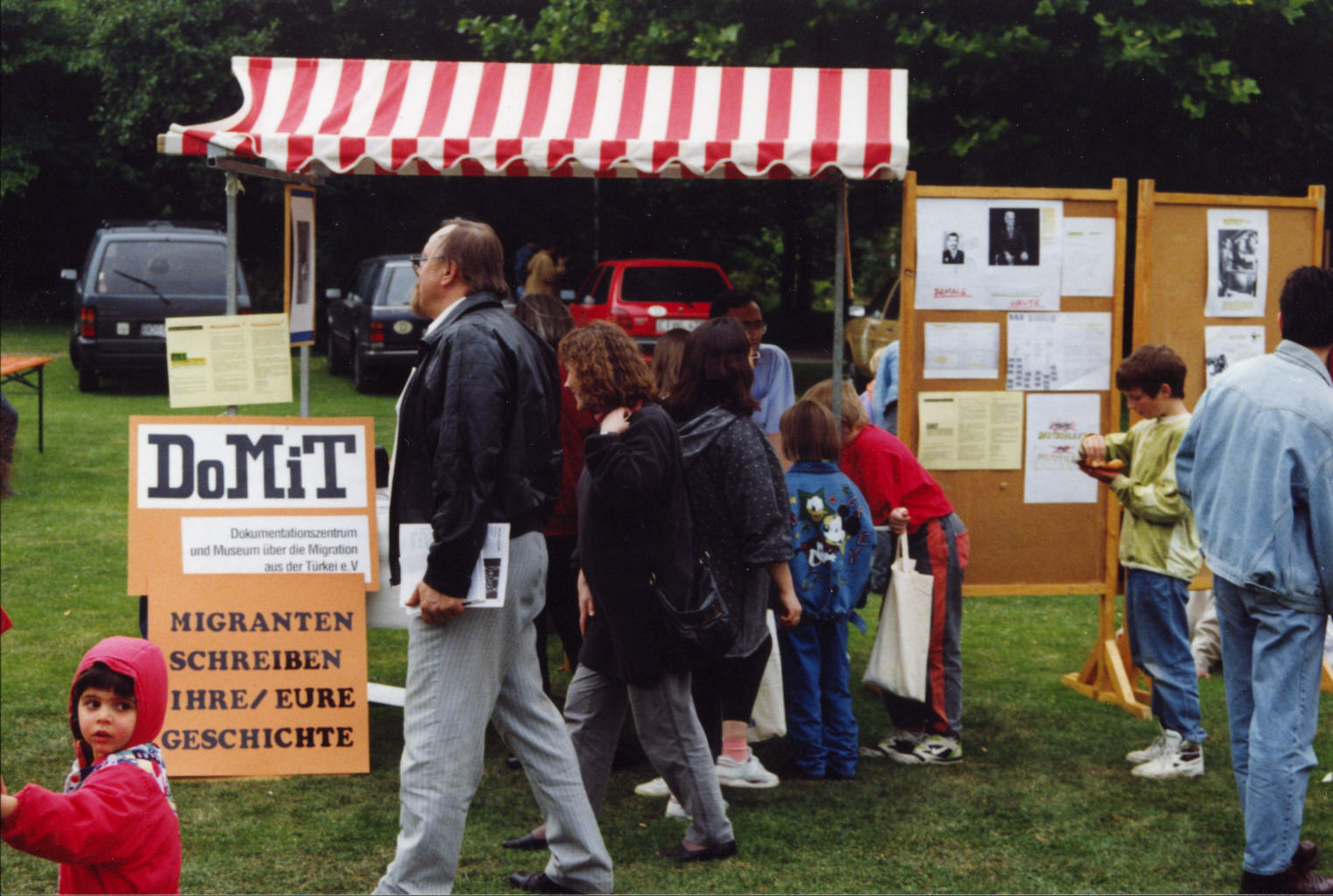
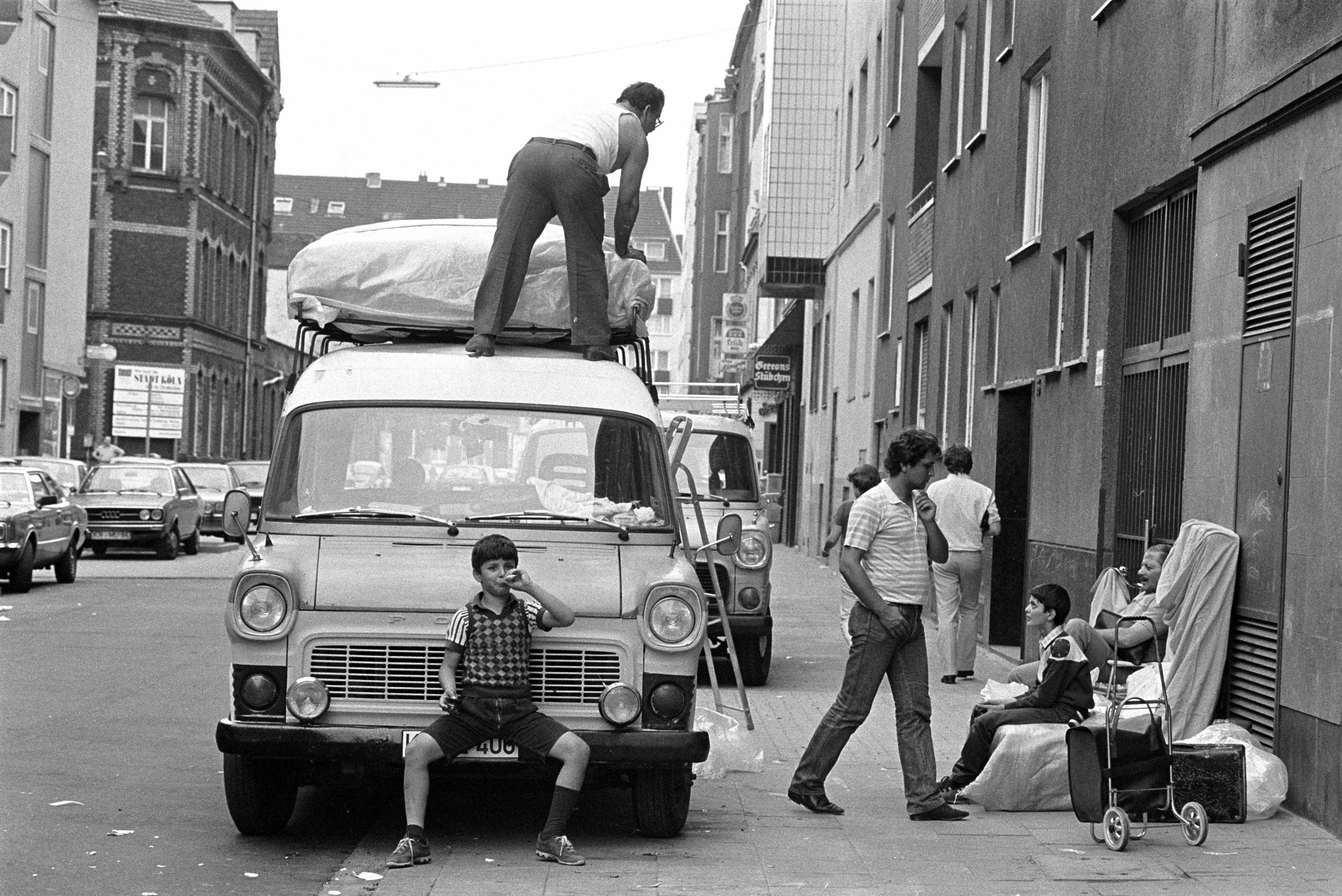
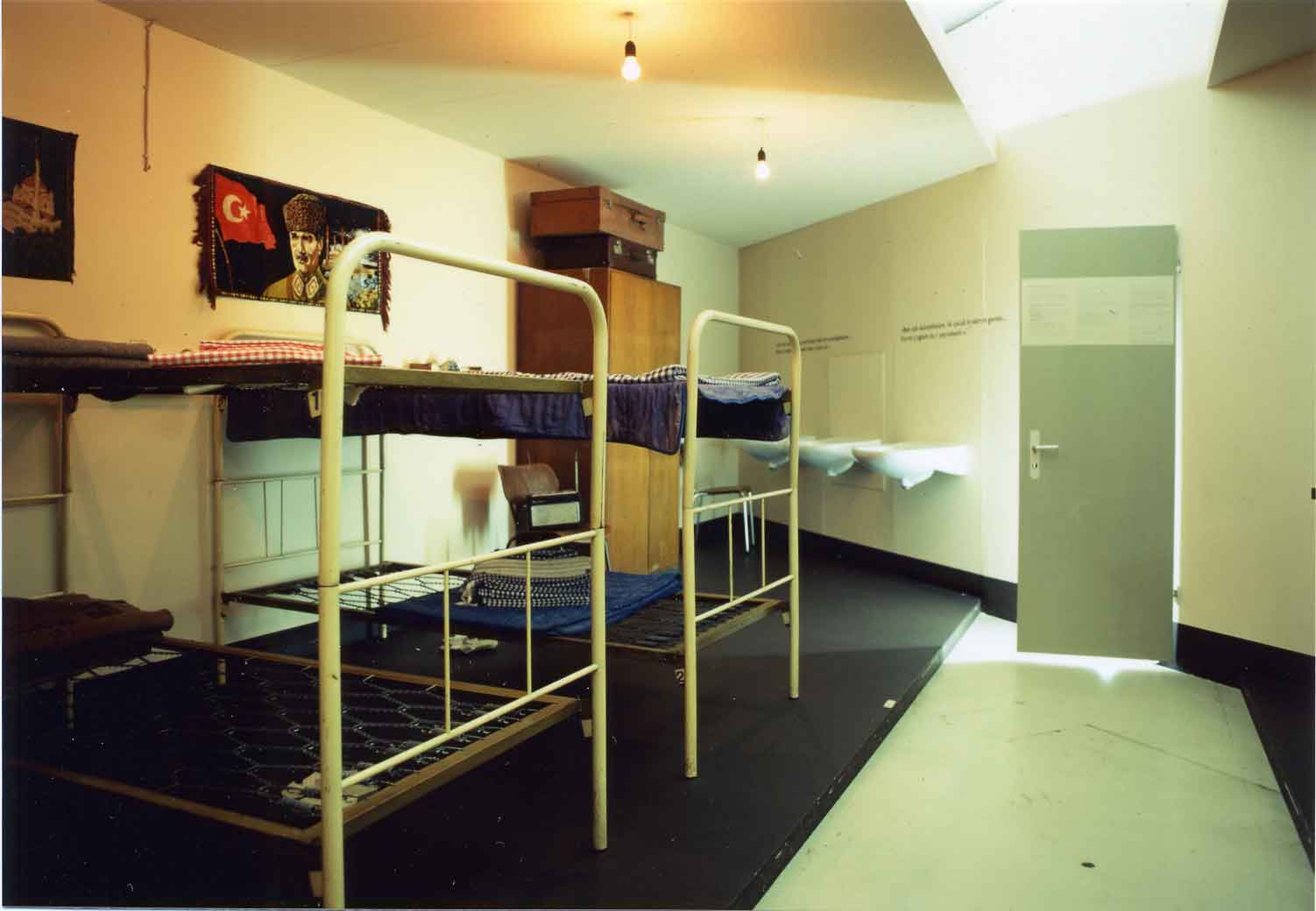
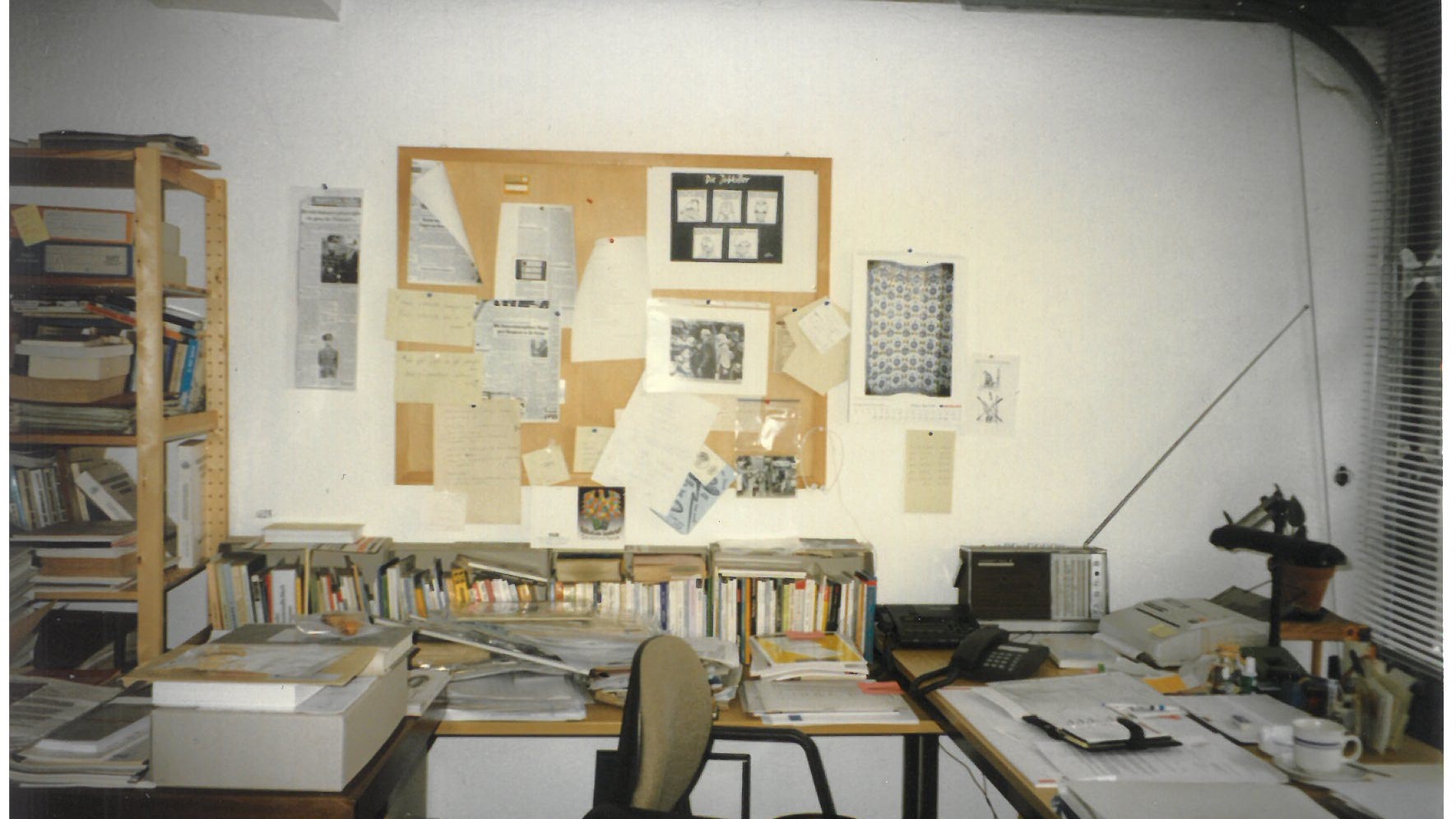
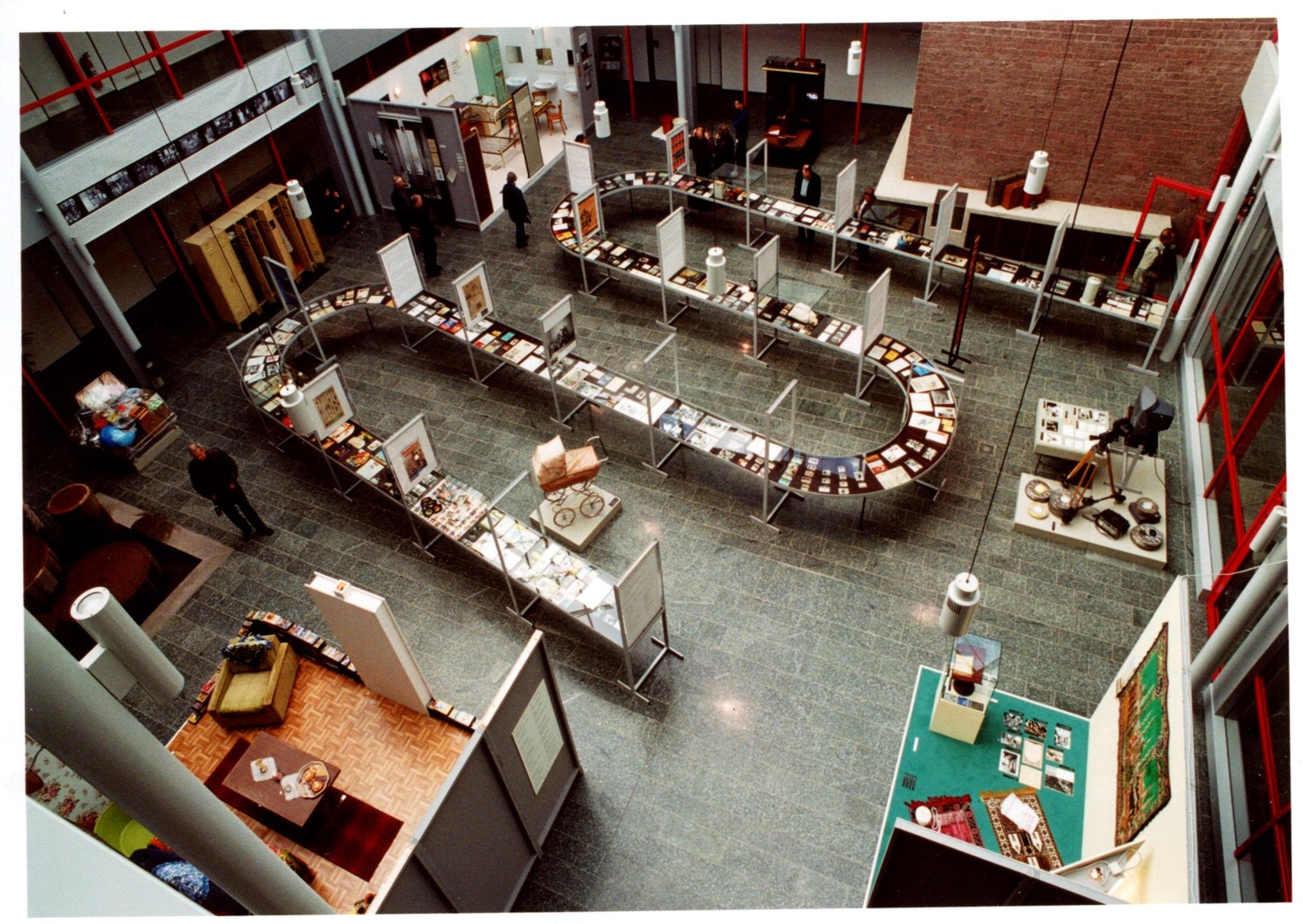
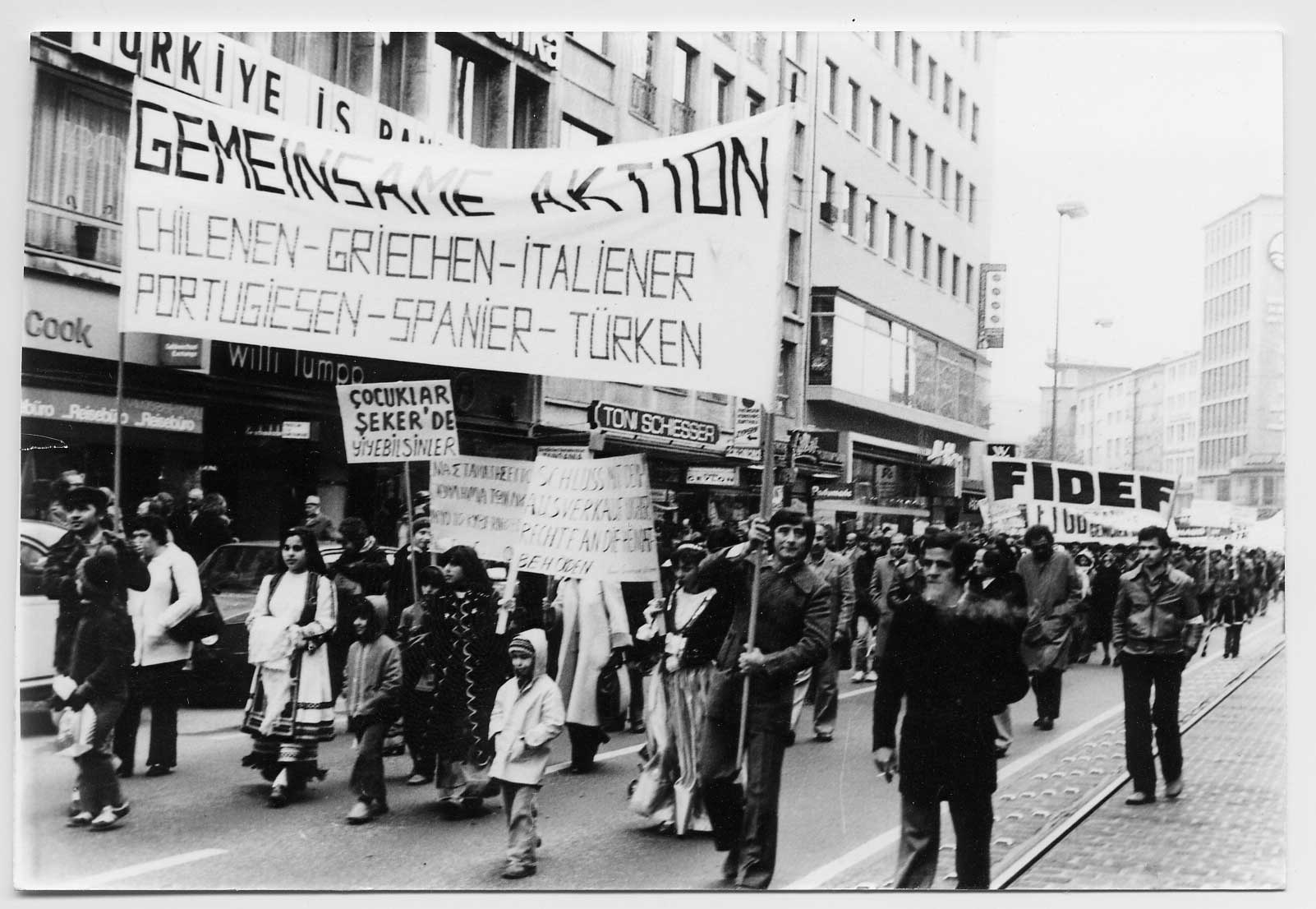
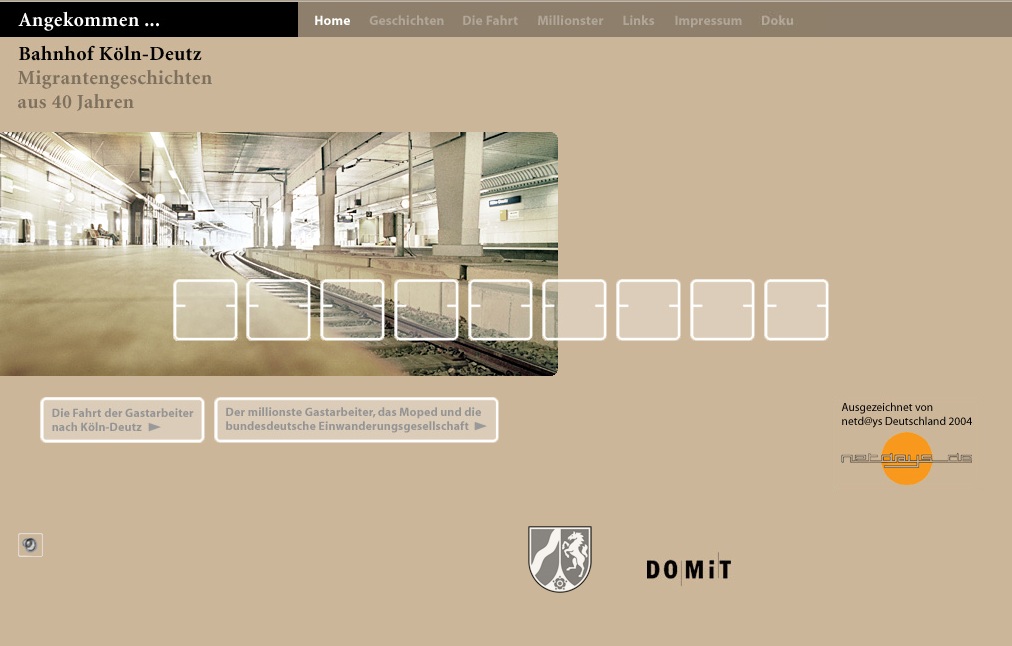
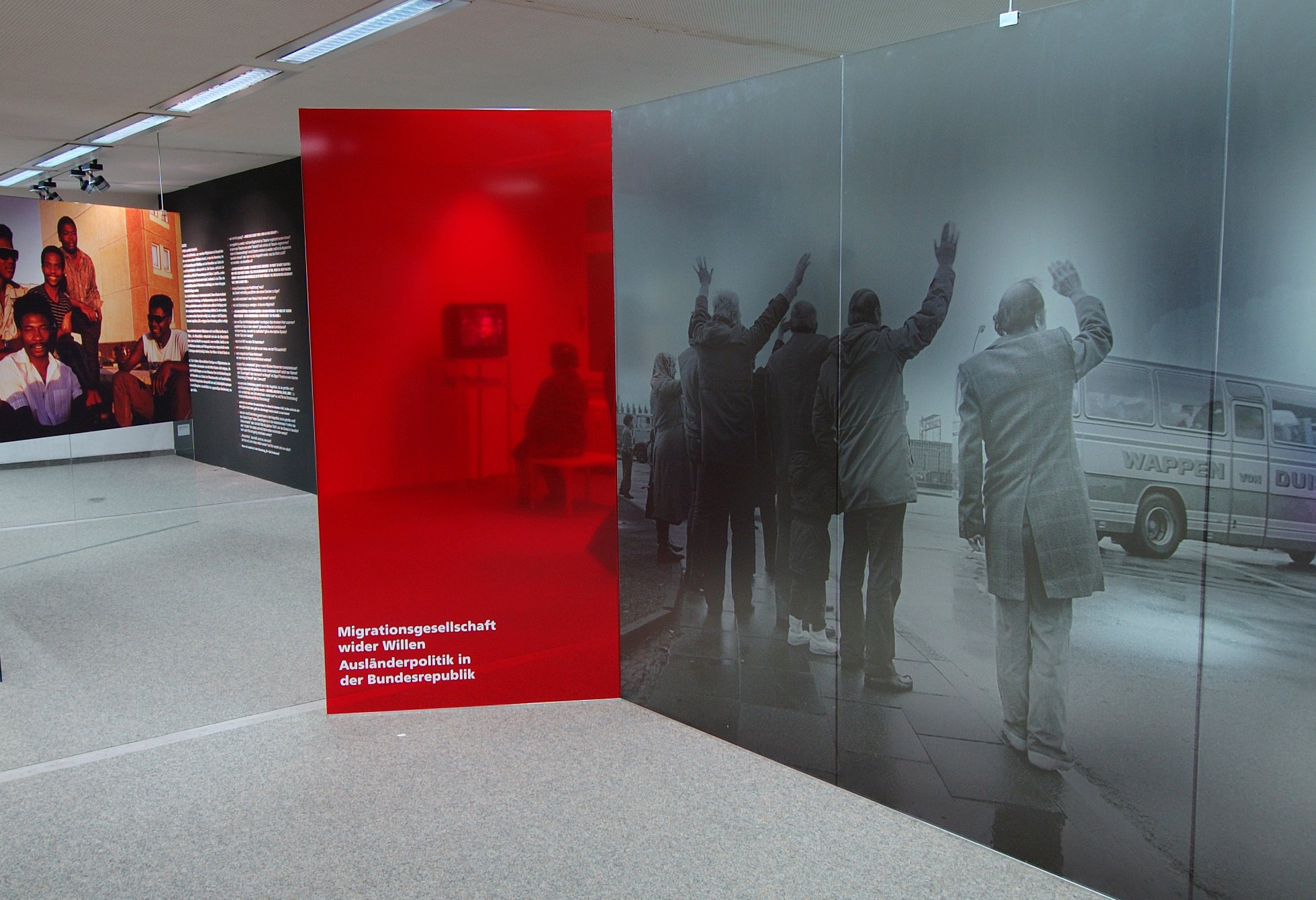
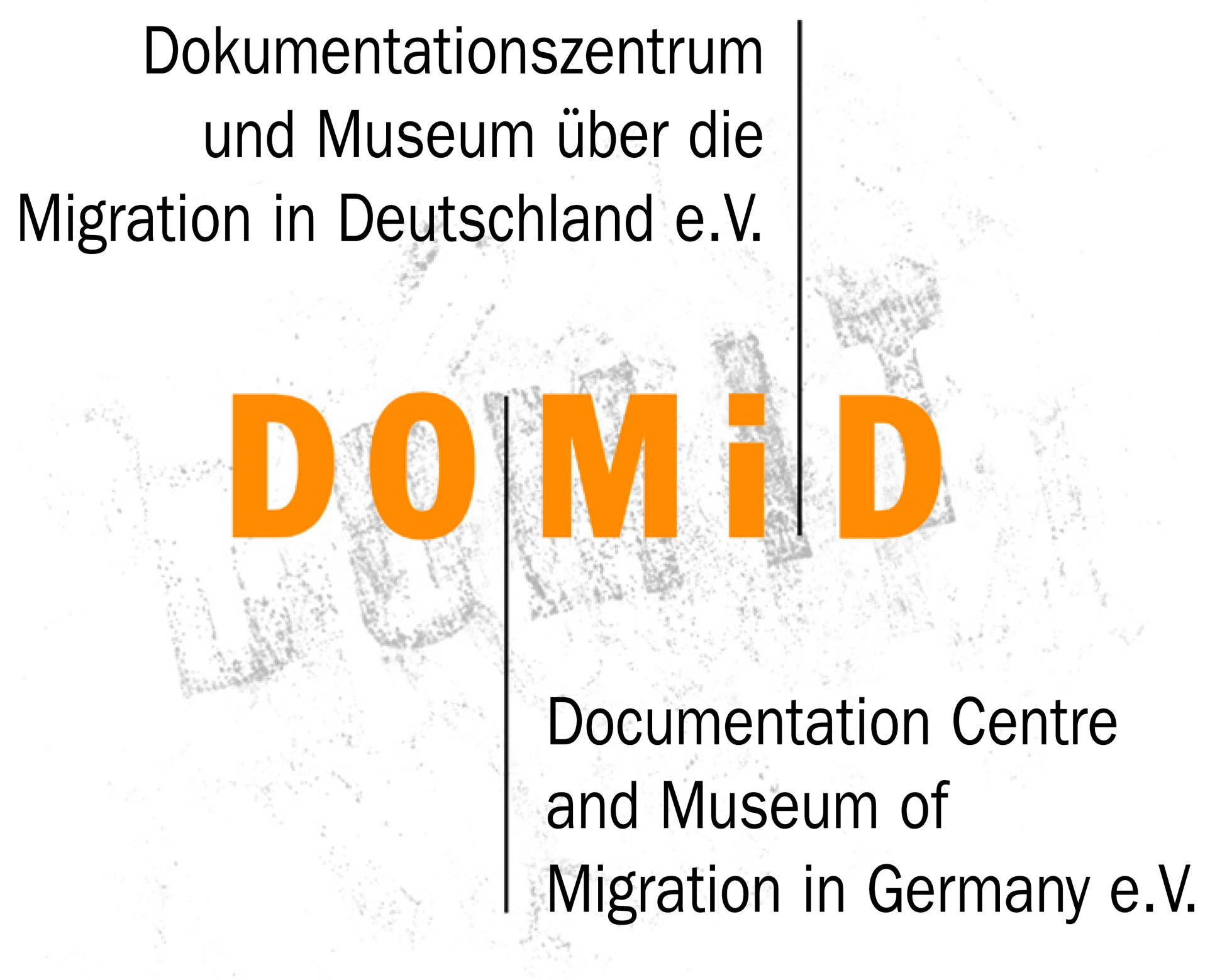
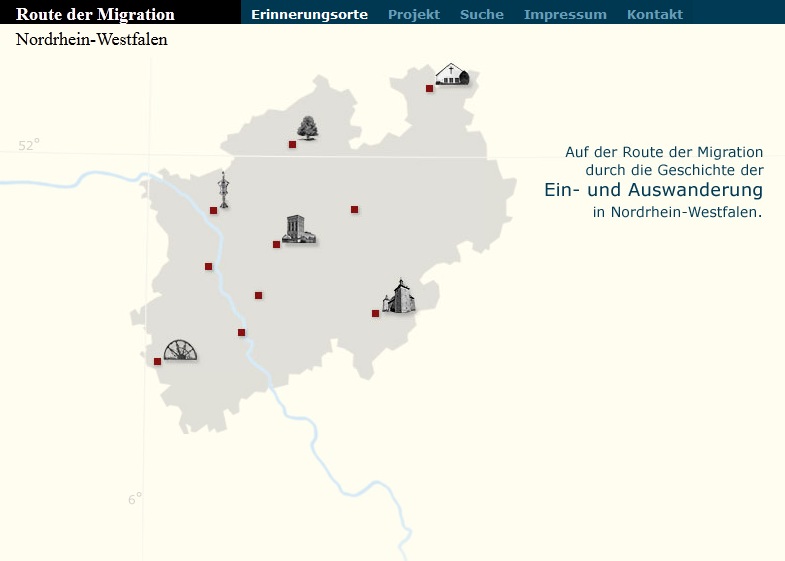
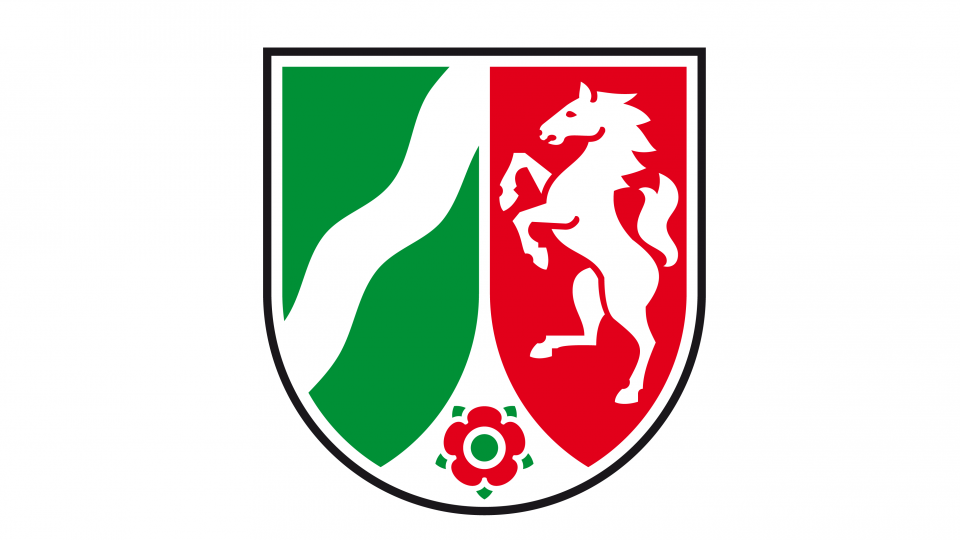
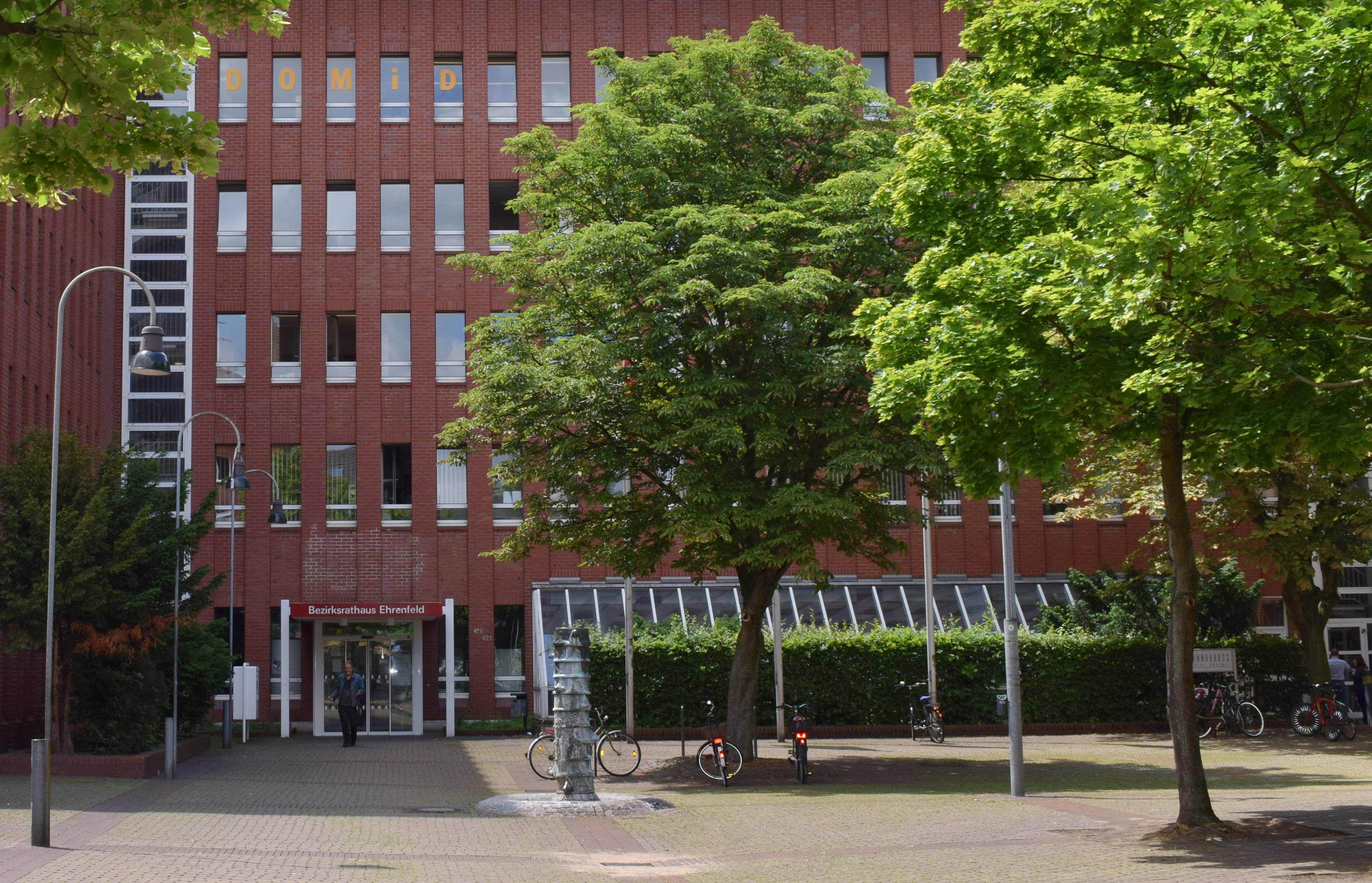
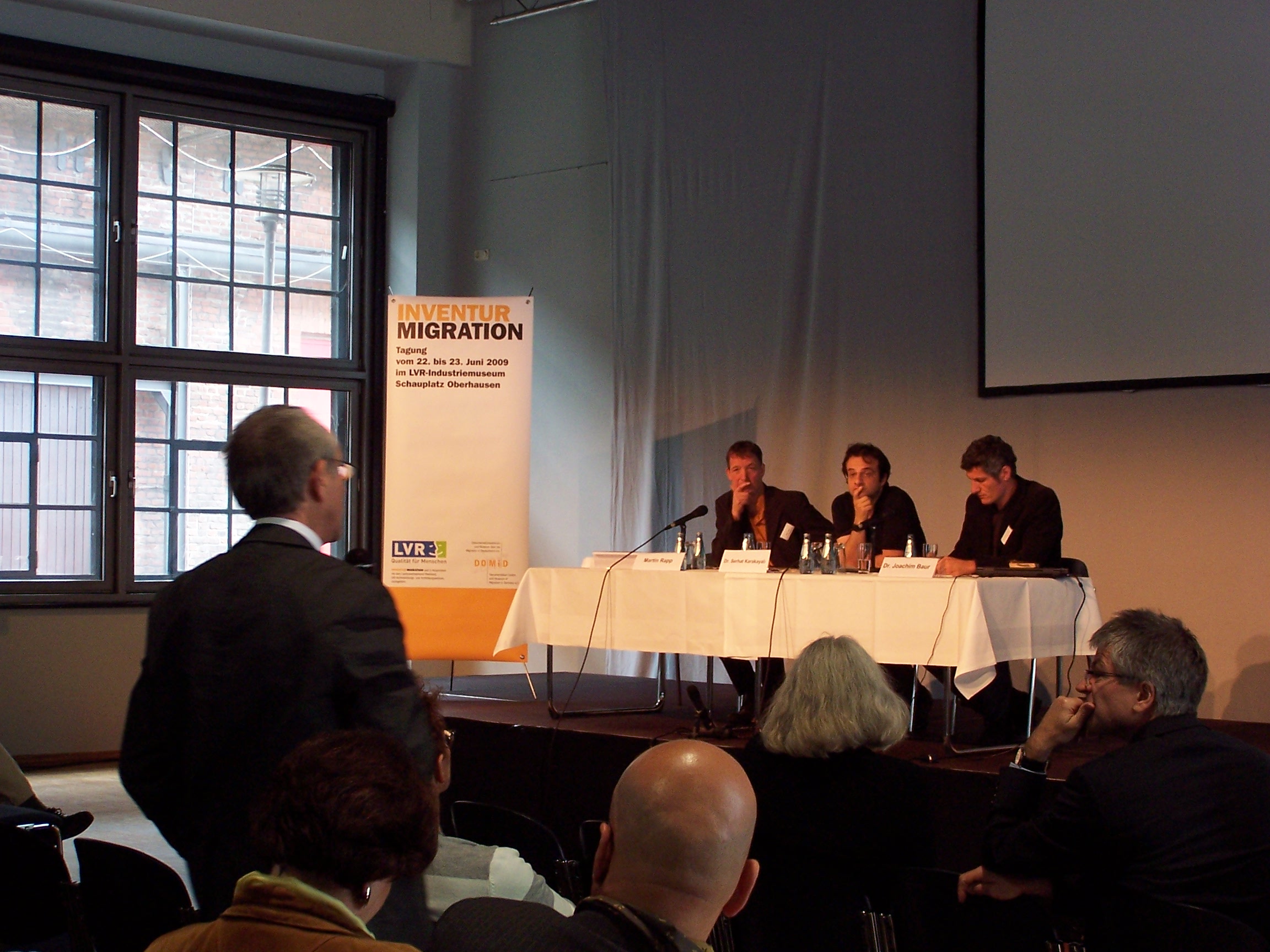
1990: In 1988, migrants from Turkey developed the idea of creating a publicly accessible archive about migration from Turkey. The original vision was to establish a Europe-wide center. Later, migration in Germany became the core of the concept. The photo shows from left to right Sevtap Sezer, Aytaç Eryılmaz, Muhittin Demiray, Ahmet Sezer and Gönül Göhler. Photo: DOMiD Archive, Cologne
1990: At the end of the 1980s, the associations Türkei-Archiv in Berlin and Türkei-Data in Essen merged and in 1990 founded the association DOMiT - Dokumentationszentrum und Museum über die Migration aus der Türkei e.V. The goal was, as a self-organization of migrants*, to preserve the historical legacy of immigrants for future generations and to make it accessible to the public. Photo: DOMiD Archive, Cologne
1996: In this year the scientific symposium "Türkische MigrantInnen in Deutschland. Balance of the 35-year migration from Turkey", took place in cooperation with the Institute for Migration Research, Pedagogy of Foreigners and Didactics of Second Languages and the Auslandsgesellschaft Nordrhein-Westfalen. Venue: University GHS Essen. Photo: Guenay Ulutuncok/ DOMiD Archive, Cologne
1998: Bilingual exhibition "Fremde Heimat. A History of Immigration from Turkey - Yaban, Sılan olur. Türkiye'den Almanya'ya Göçün Tarihi" together with the Ruhrlandmuseum Essen. For this exhibition, it was possible for the first time to research the files of German and Turkish authorities on the subject of labor migration. It was the first time, beyond Germany, that a museum developed an exhibition on immigration history in equal partnership with immigrants. The proportion of visitors to the exhibition of Turkish origin was well over 40 percent. Photo: DOMiD Archive, Cologne
2000: In this year DOMiT changed its location and moved with the office from Essen to Cologne. For 9 years DOMiT/DOMiD stayed with its premises in the Bonner Straße 211 of the south of Cologne until 2009 when another move to Cologne-Ehrenfeld was realized. Photo: DOMiD Archive, Cologne
2001: Bilingual (German/Turkish) exhibition: "40 Jahre Fremde Heimat - Einwanderung aus der Türkei in Köln. 40 yıl Almanya - Yaban, Sılan olur." It told the story of immigration from Turkey to Cologne from the perspective of the so-called "guest workers", their neighbors, friends and colleagues. In doing so, she brought to light surprising stories that did not correspond at all to the usual clichés. Venue: Historic City Hall Cologne. Photo: DOMiD Archive, Cologne
2004: The conception and realization of the photo exhibition "Shared Memories" about labor migration to Germany was developed in cooperation with the Federal Agency for Civic Education, the State Working Group of Municipal Migrant Representatives in North Rhine-Westphalia and the City of Cologne. The black-and-white photographs convey an impression of the working and living environment of former "guest workers" in Germany. The special feature: The photographs tell the story of the migrants from their own perspective. As a result, previously hidden sides of German immigration history also come to light. The first stop was the North Rhine-Westphalian state parliament in Düsseldorf in October. The exhibition has already been shown in 10 German cities. Photo: photographer unknown. We have made every effort to notify all copyright owners. Nevertheless, if individuals have not been notified, please contact us.
2004: The conception and realization of the photo exhibition "Shared Memories" about labor migration to Germany was developed in cooperation with the Federal Agency for Civic Education, the State Working Group of Municipal Migrant Representatives in North Rhine-Westphalia and the City of Cologne. The black-and-white photographs convey an impression of the working and living environment of former "guest workers" in Germany. The special feature: The photographs tell the story of the migrants from their own perspective. As a result, previously hidden sides of German immigration history also come to light. The first stop was the North Rhine-Westphalian state parliament in Düsseldorf in October. The exhibition has already been shown in 10 German cities. Photo: DOMiD Archive, Cologne
2005: A large-scale exhibition project "Project Migration" from September 30, 2005 to January 15, 2006 in Cologne. DOMiD developed an exhibition about migration in Germany in cooperation with the Kölnischer Kunstverein, the Institute for Cultural Anthropology and European Ethnology at the University of Frankfurt am Main, the Institute for Theory of Design and Art in Zurich, and scholars* from various disciplines. The project Migration was funded by the German Federal Cultural Foundation. Venues: Kölnischer Kunstverein, Die Brücke, Crowne Plaza City Centre. Photo: DOMiD Archive, Cologne
2007: In this year, DOMiT merged with the association "Migrationsmuseum in Deutschland e.V.". The new association DOMiD - Dokumentationszentrum und Museum über die Migration in Deutschland e.V. is no longer a self-organisation of Turkish migrants, but brings together migrants of different origins and Germans without a migration background. The composition of the organisation's bodies is intended to adequately represent the diversity of immigration to Germany. Photo: DOMiD archive, Cologne
2007: In this year the fusion of DOMiT with the association "Migrationsmuseum in Deutschland e.V." took place. The new association DOMiD - Documentation Center and Museum about Migration in Germany e.V. is now no longer a self-organization of Turkish migrants, but brings together migrants of different origins and Germans without migration background. The composition of the association's bodies is intended to adequately represent the diversity of immigration to Germany. Photo: DOMiD Archive, Cologne
2009: From this year on, the state of NRW subsidized DOMiD with an annual grant. This makes it possible to institutionalize and consolidate the work in the office, the expansion of the archive and the collection. Photo: DOMiD Archive, Cologne
2009: In the same year, the move to new premises in the Cologne-Ehrenfeld district town hall was realized. Since then, the rental costs have been borne by the city of Cologne, thus supporting the further expansion of the collection. Photo: DOMiD Archive, Cologne
2009: The international conference "Inventur Migration" in cooperation with the Landschaftsverband Rheinland, LVR-Archivberatungs- und Fortbildungszentrum also took place in 2009. The conference brought together experts from archives and museums in Germany and abroad. The questions "What sources on migration exist and how is this history of migratory movements handed down?" were the focus of the event. In a second part, criteria for the historical relevance of sources on migration history were elaborated. The results of this conference are to be incorporated into a concept for the creation of an inventory of migration, which is to be carried out in cooperation with archives and museums in the coming years. Venue: Rheinisches Industriemuseum Oberhausen. Photo: DOMiD Archive, Cologne
Exhibition history
Through the exhibition "Foreign Home: A History of Immigration from Turkey" ("Fremde Heimat. Eine Geschichte der Einwanderung aus der Türkei"), DOMiD was able to reach a large audience for the first time. The groundbreaking display was shown in the Ruhrlandmuseum Essen (today called the Ruhr Museum) in 1998. Further exhibitions and internet projects on migration to Germany soon followed.
Between 2002 and 2006, DOMiD worked with several cooperative partners on "Project Migration," an endeavor supported by the German Federal Cultural Foundation. The project culminated in a large socio-historical and artistic exhibition, which was shown in four different locations in Cologne in 2005 and 2006. Through "Project Migration," we were able to add materials to our collection that represent the migration movements from Italy, Greece, Spain, Portugal, Morocco, Tunisia, former Yugoslavia, South Korea, Vietnam, Mozambique and Angola.
Our last large exhibition was displayed in the German Historical Museum in Berlin, in the historical Cologne City Hall and in the parliament of North Rhine-Westphalia in Düsseldorf in 2011. The German title "Geteilte Heimat" is a clever double entendre, which means both "divided home" and "shared home." The exhibition commemorated 50 years of migration from Turkey.
DOMiD is engaged in a number of projects. With several projects and publications, we commemorated the anniversaries of the labor recruitment agreements with Morocco and South Korea, as well as the anniversary of the "Ford Strike" in Cologne. Simultaneously, DOMiD developed its educational program, "DOMiD macht Schule." The goals of the program are to sensitize teachers and pupils to the topic of migration and to teach migration history and intercultural skills. Furthermore, in June 2014, DOMiD published a new documentation profile, which helps archivists more effectively represent the multi-facetted topic of migration.
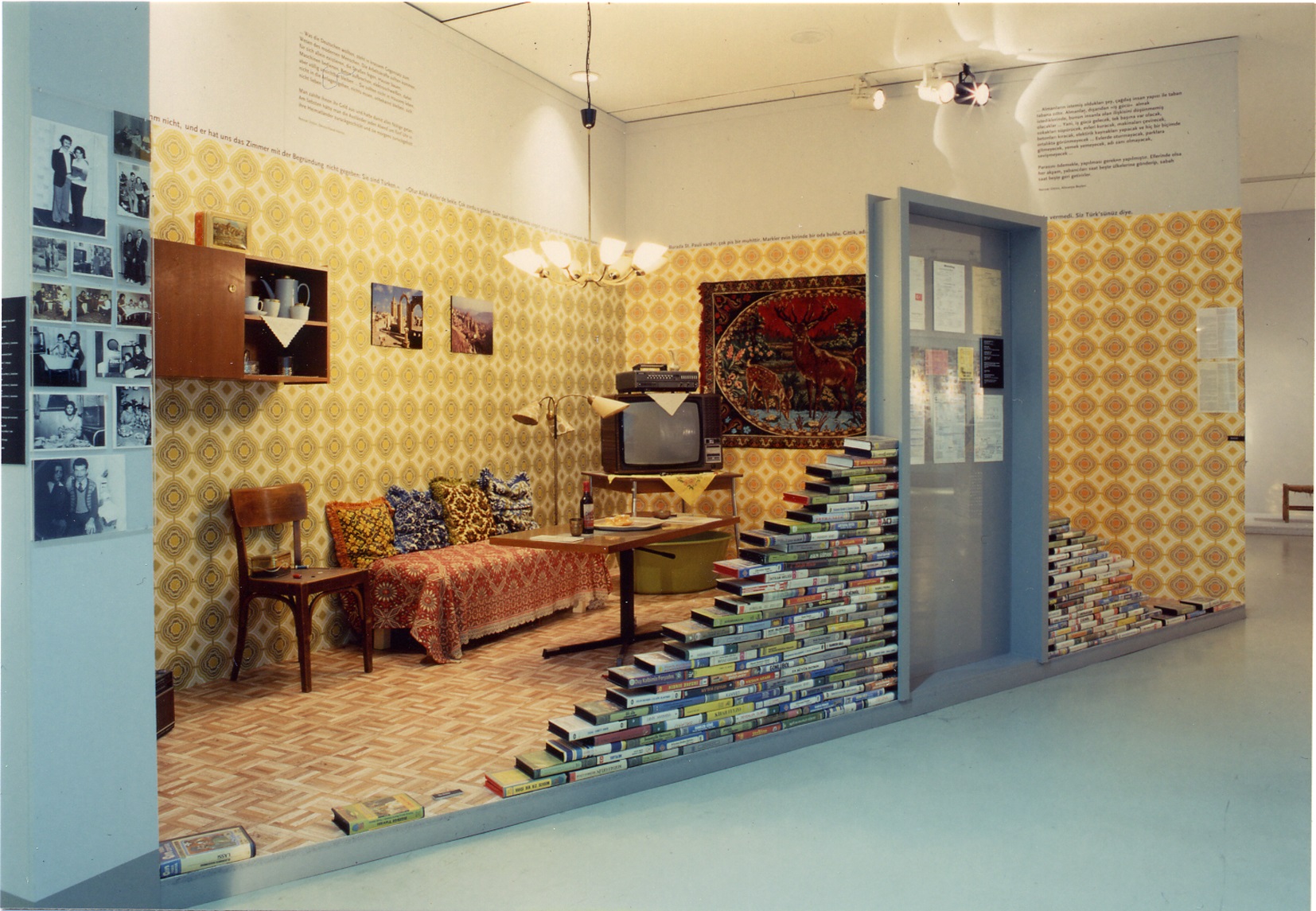
Exposition "Foreign Home– Yaban, Sılan olur", 1998, Essen. Picture: DOMiD-archieve, Cologne
DOMiD Chronik 2011-2019
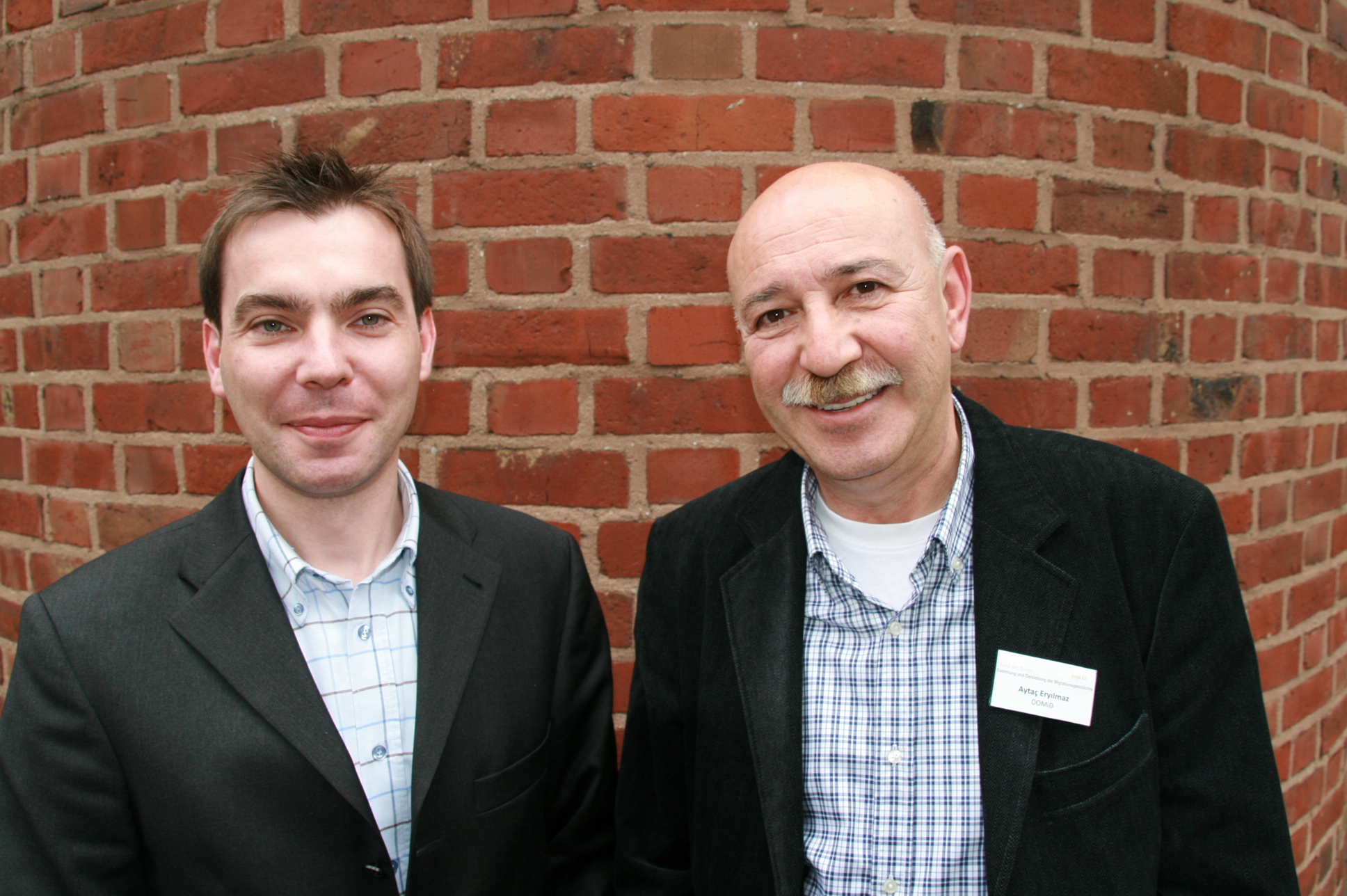
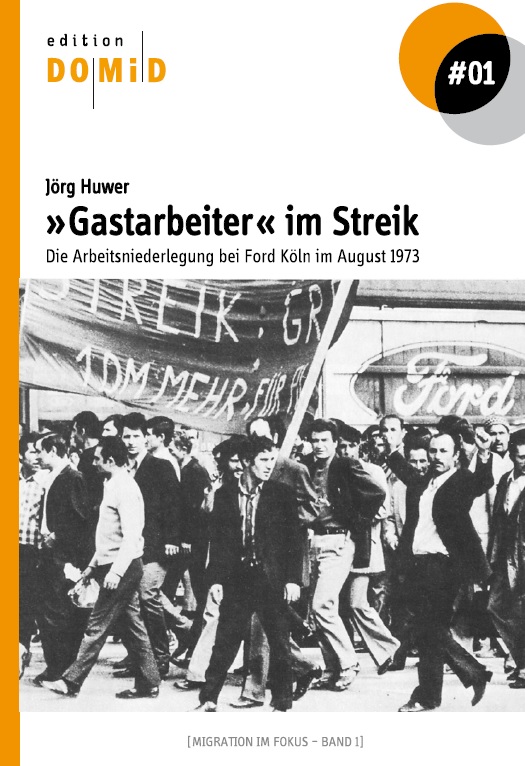
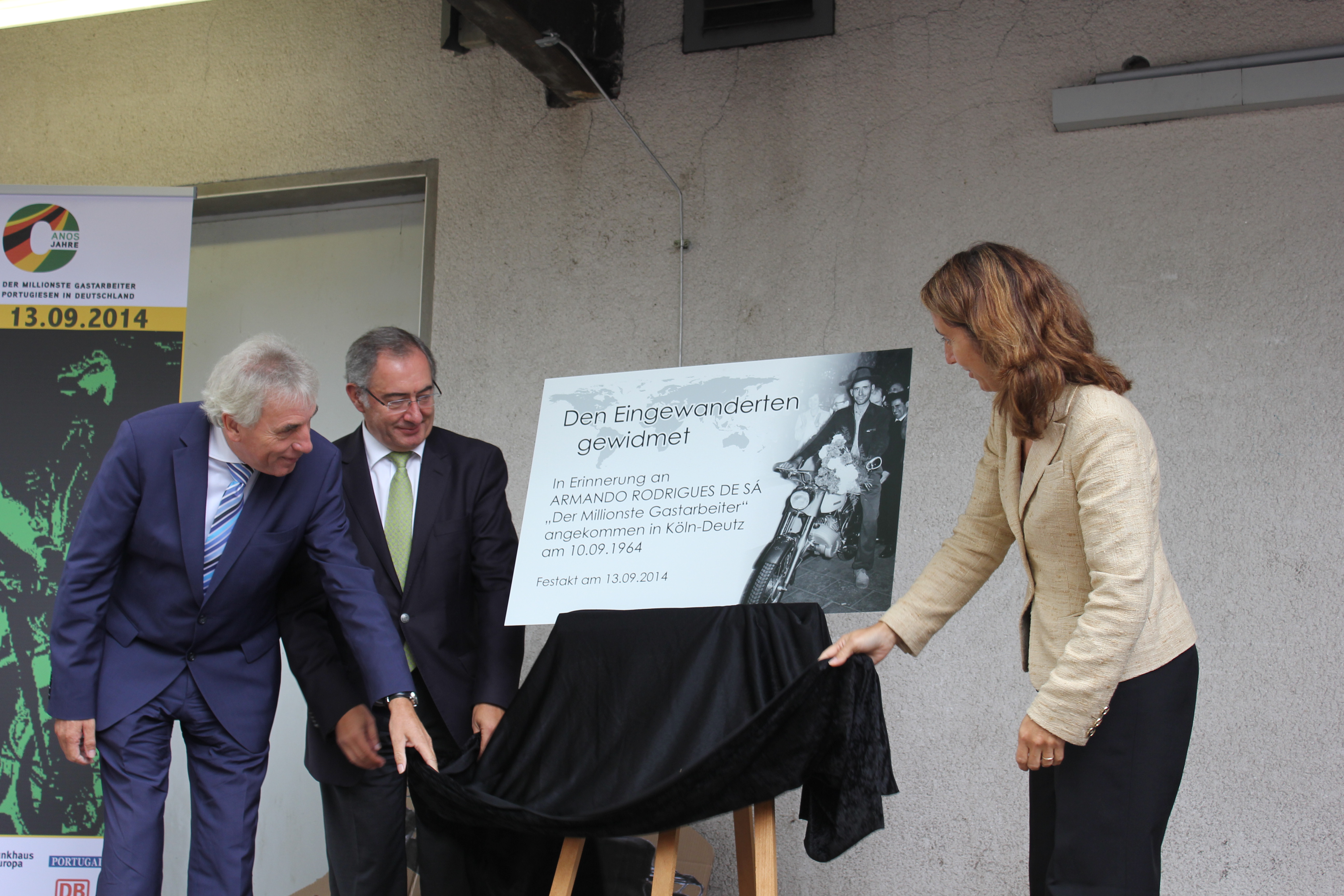
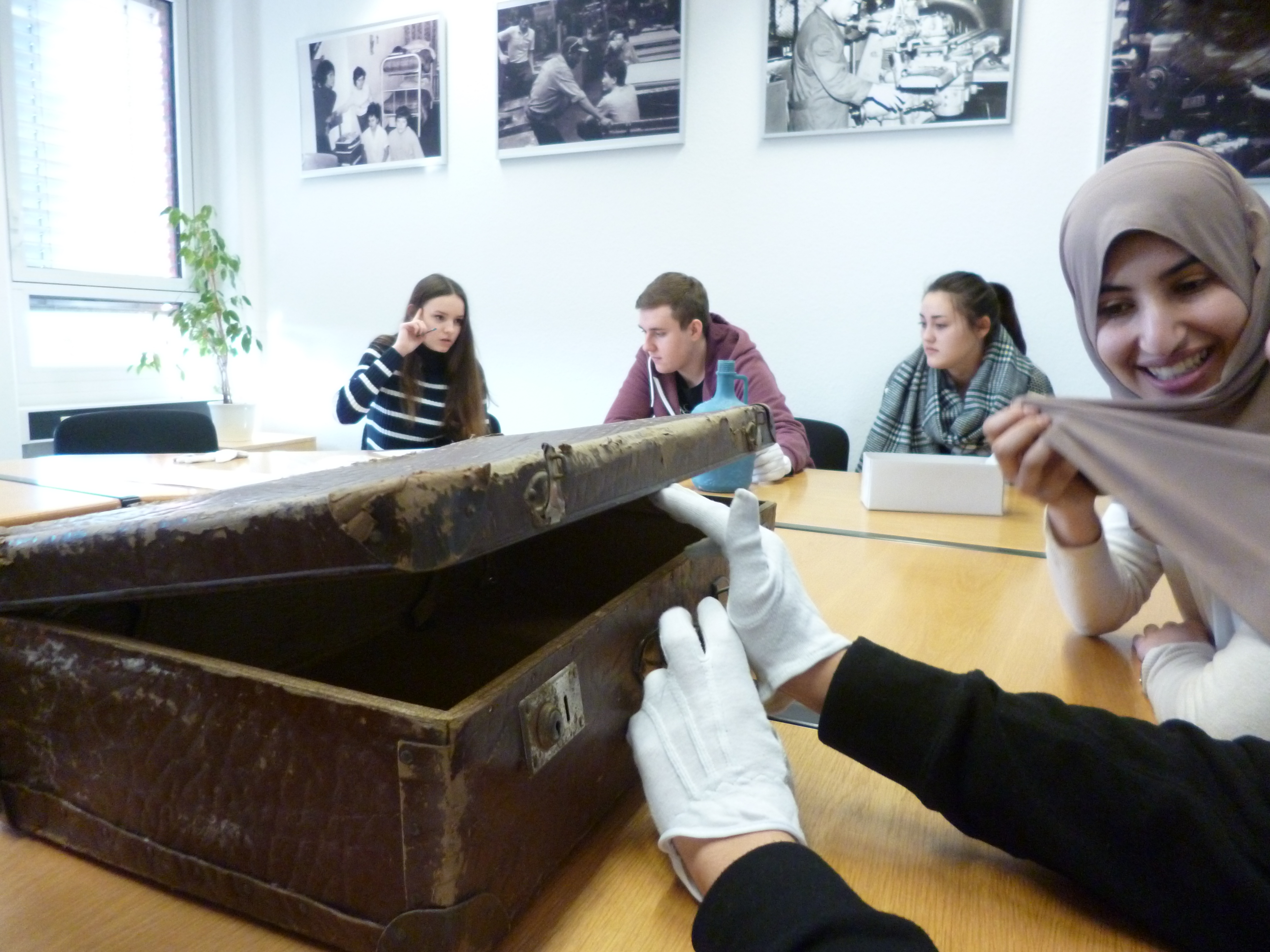
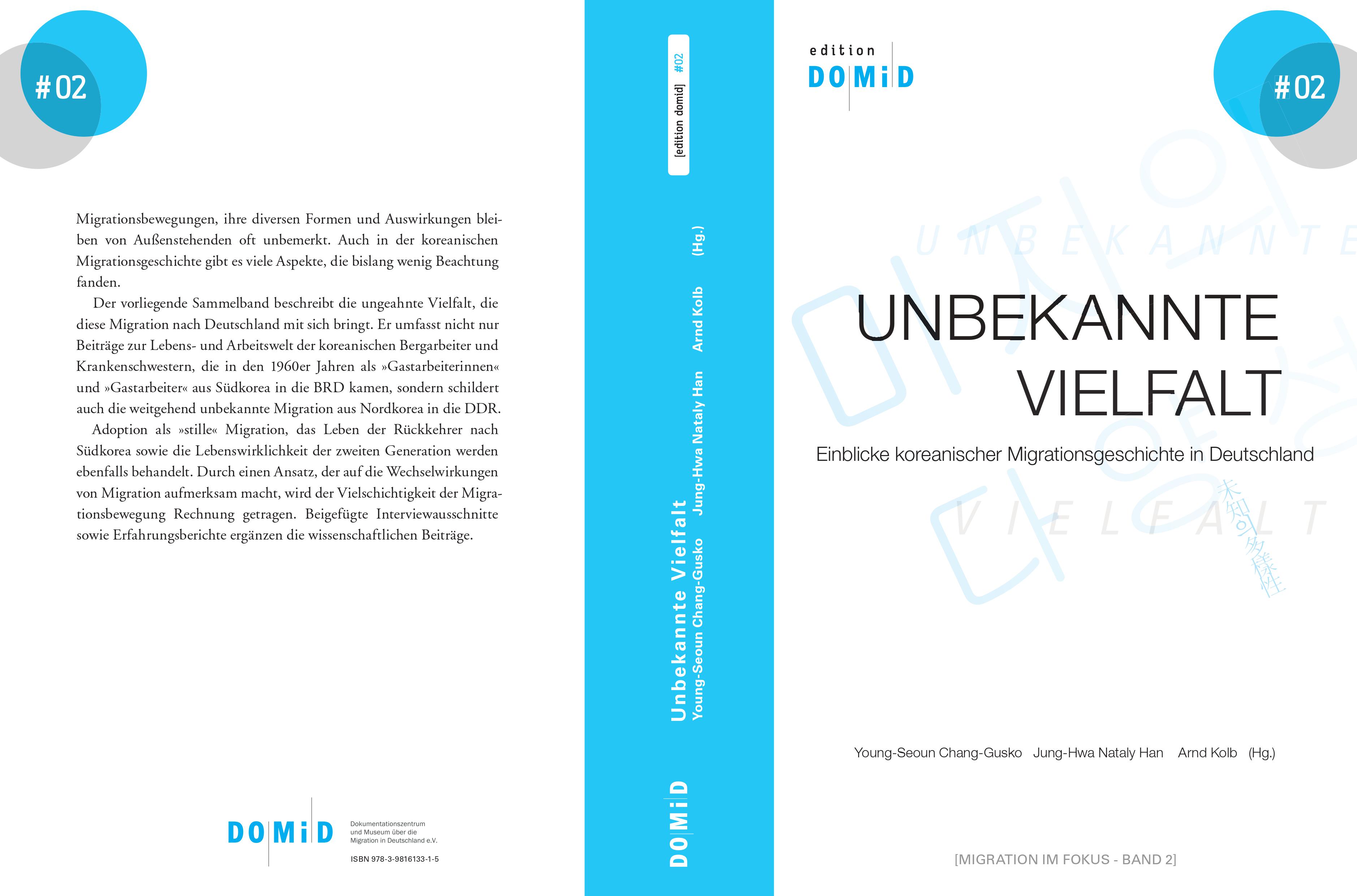
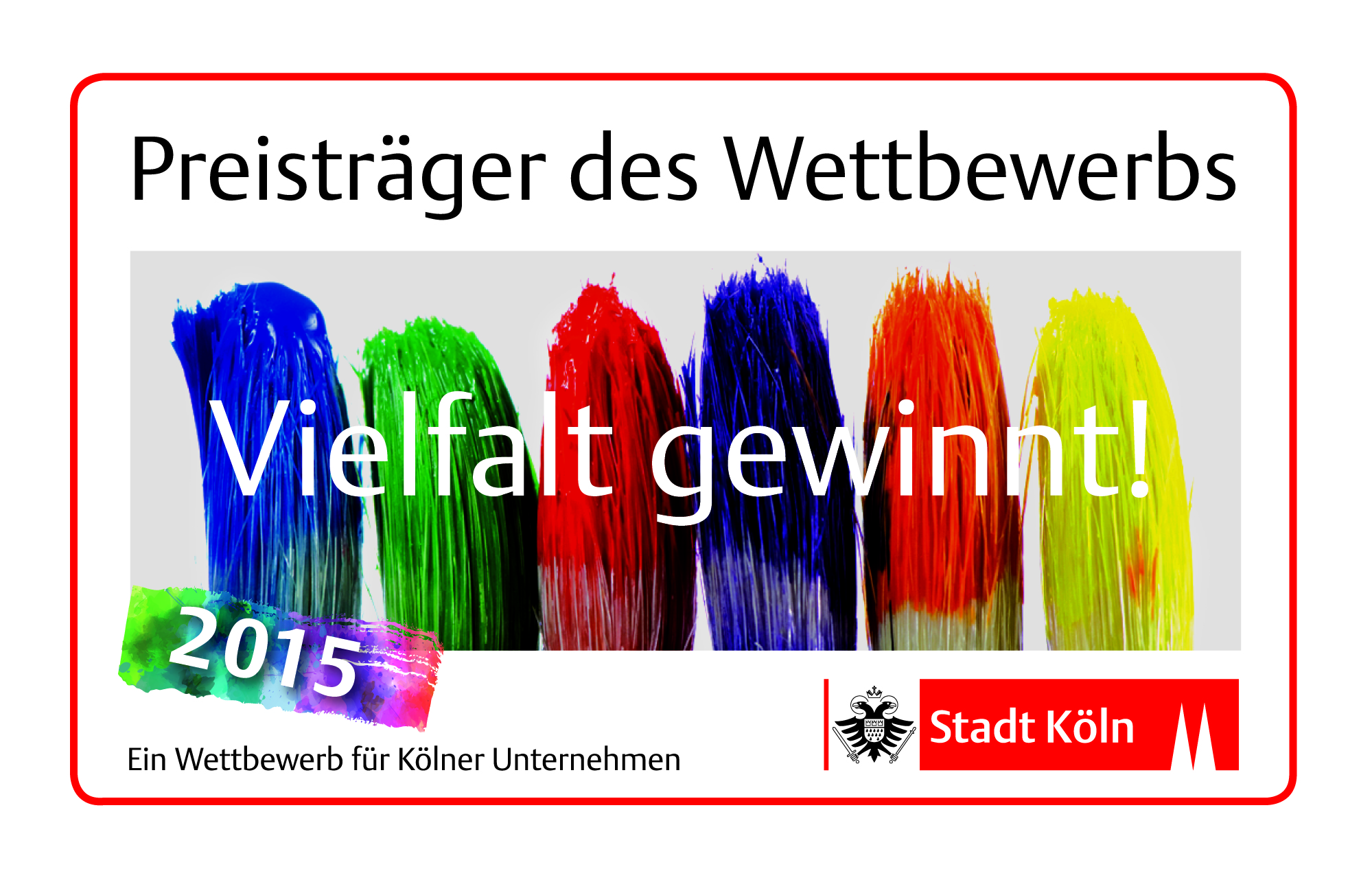
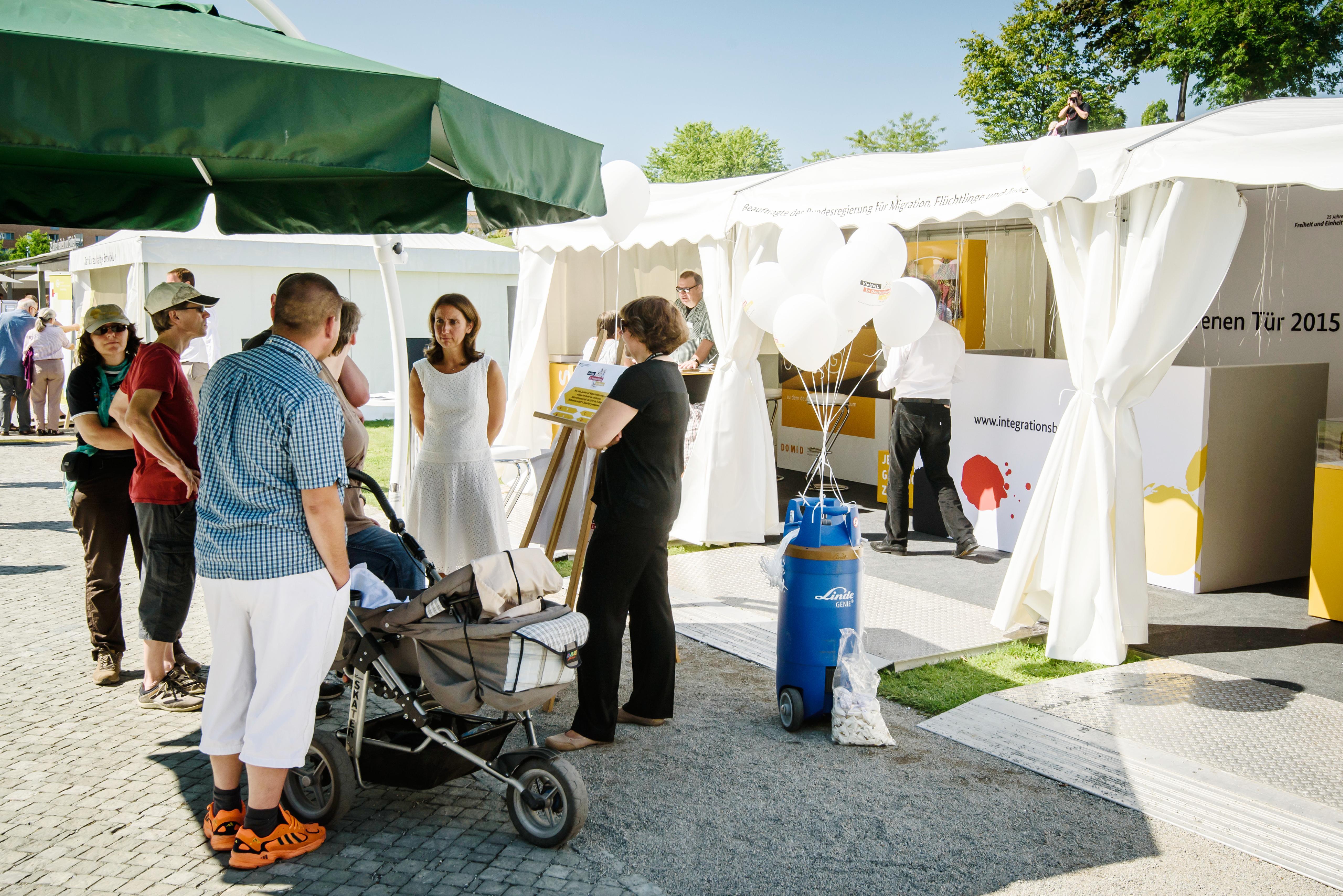
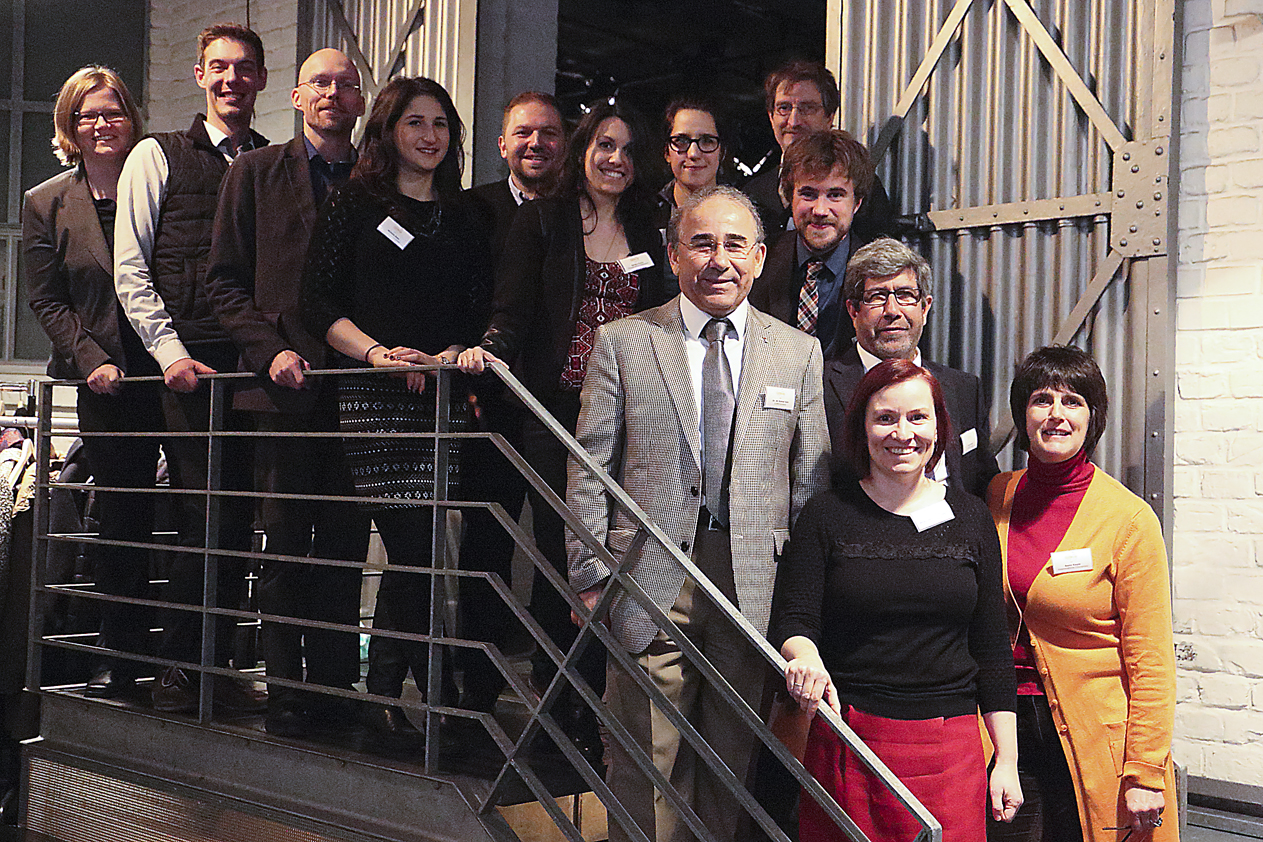
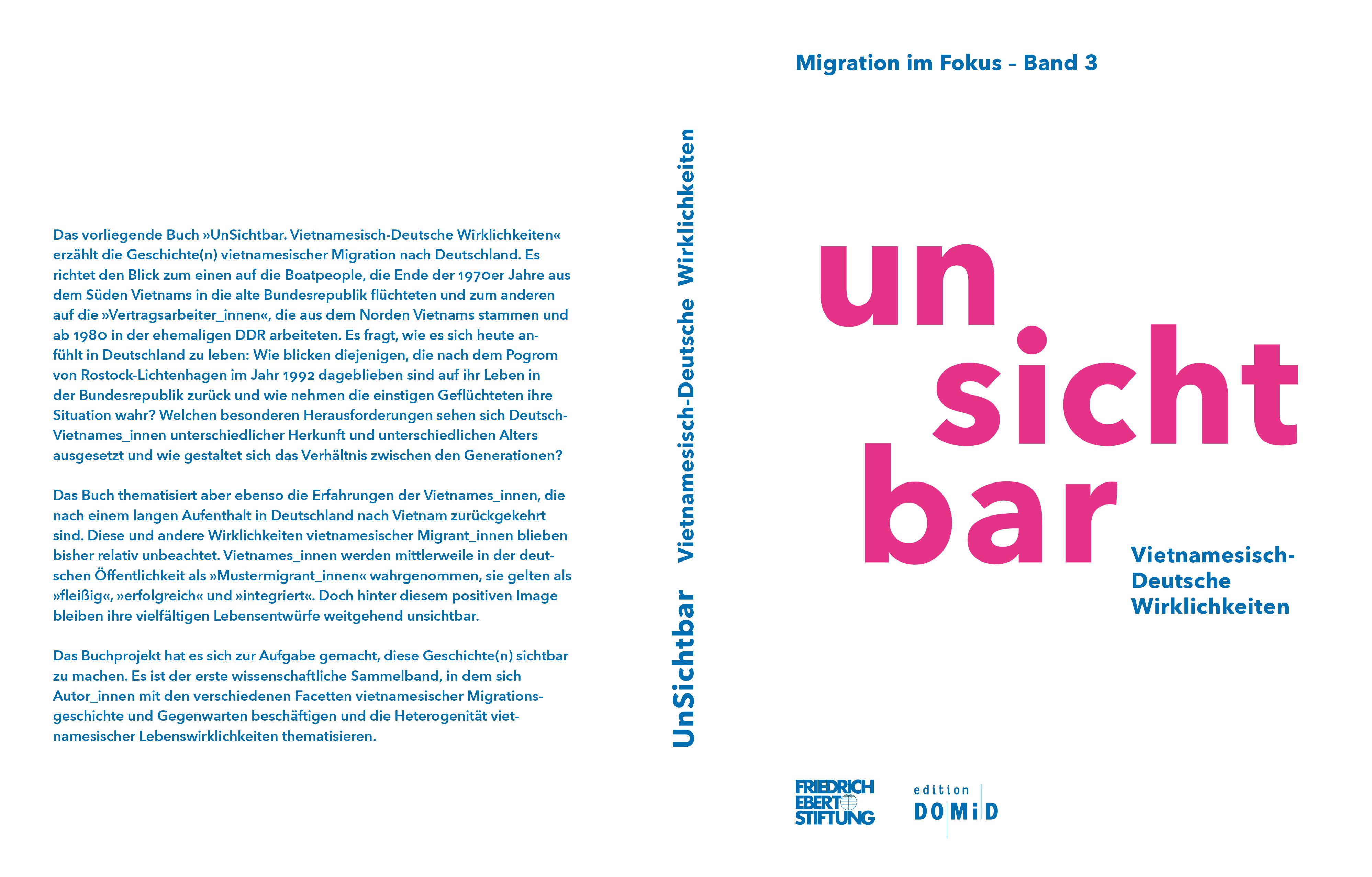
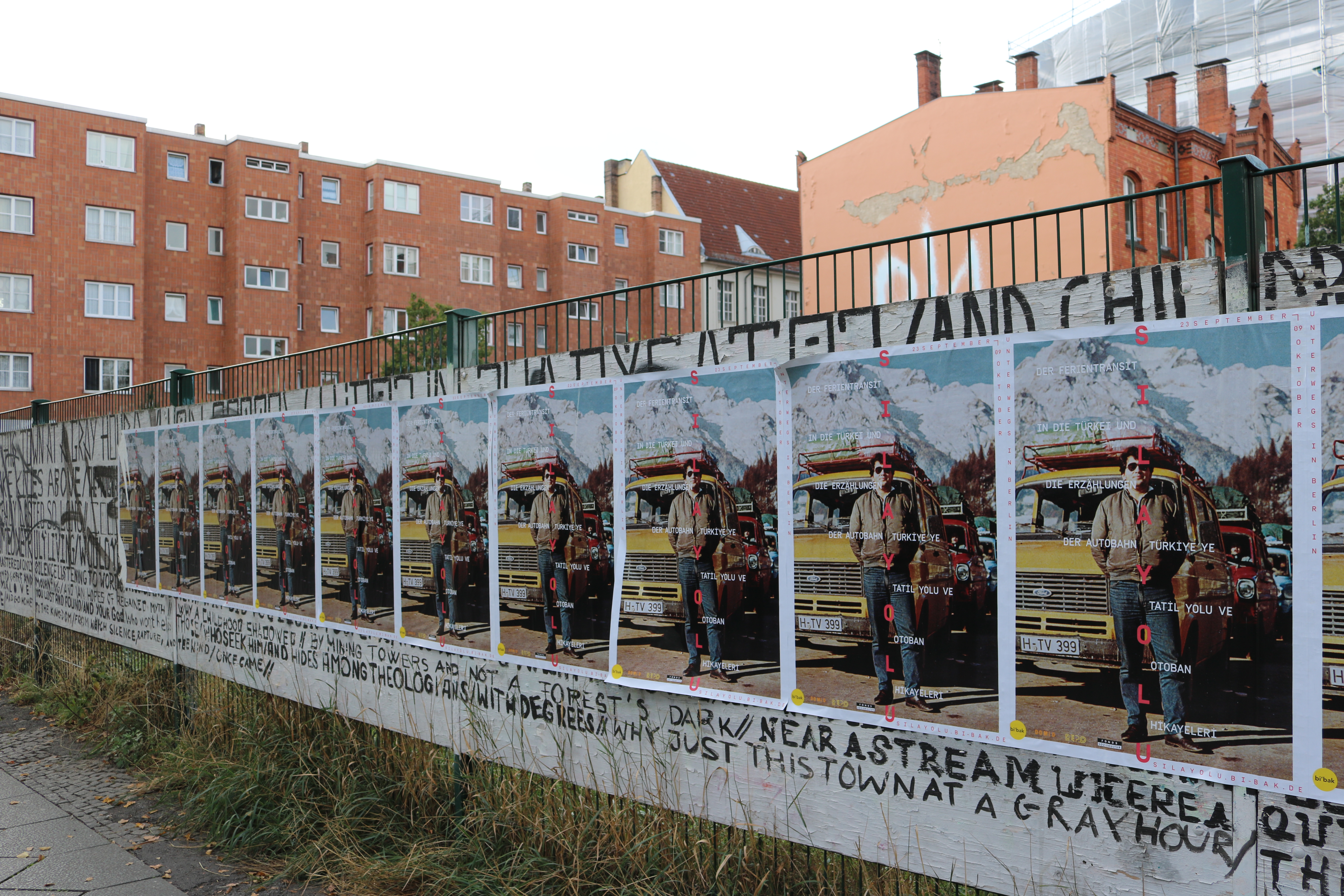
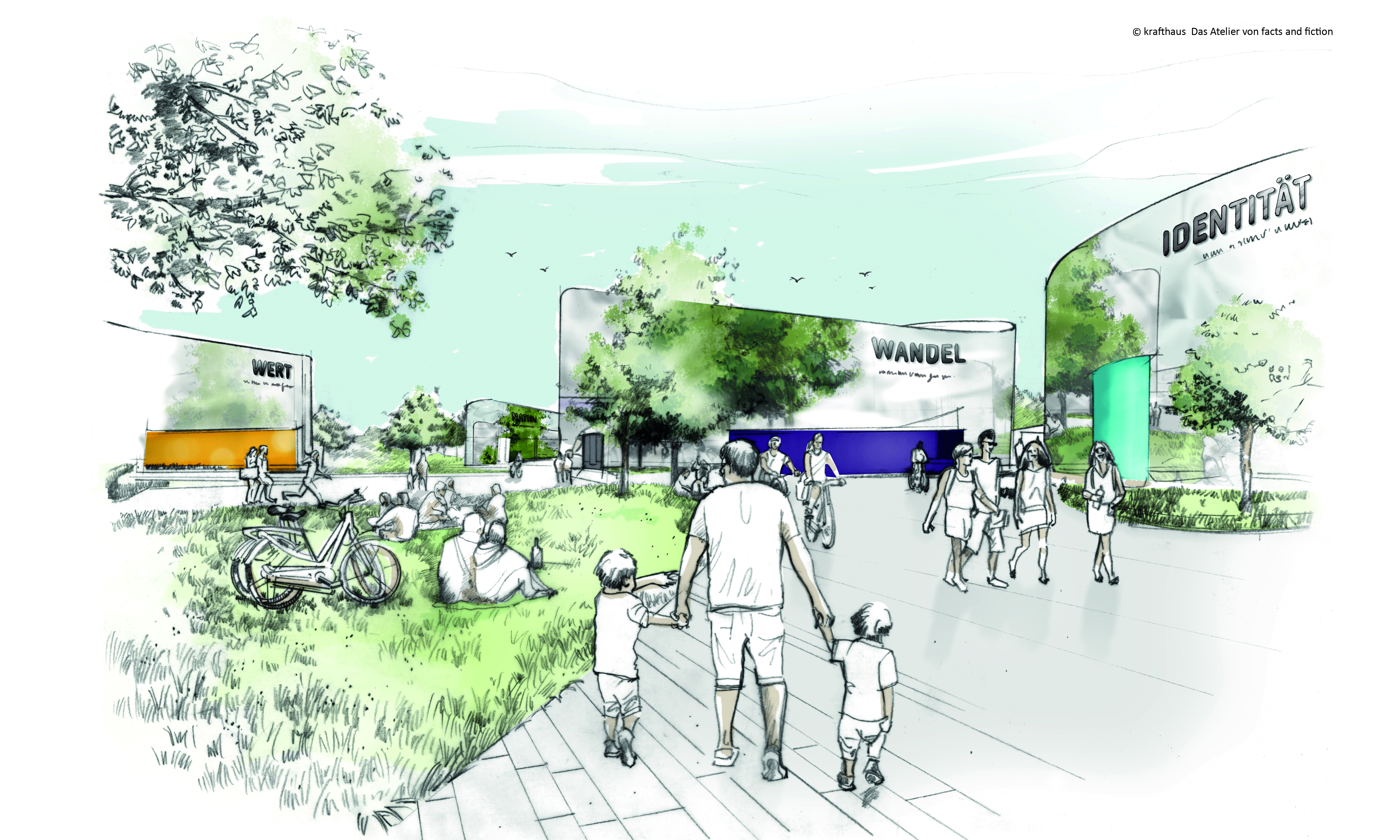
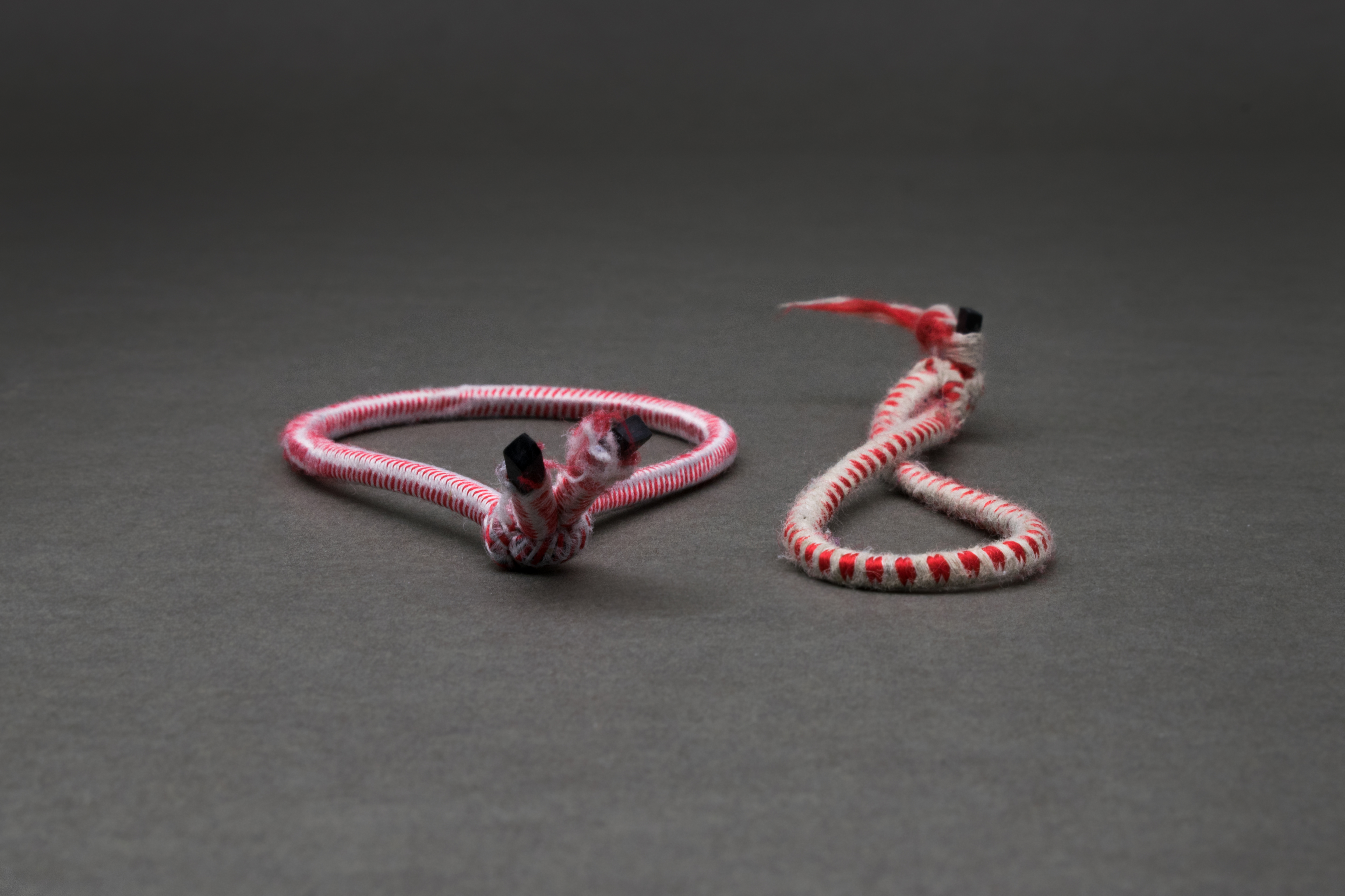
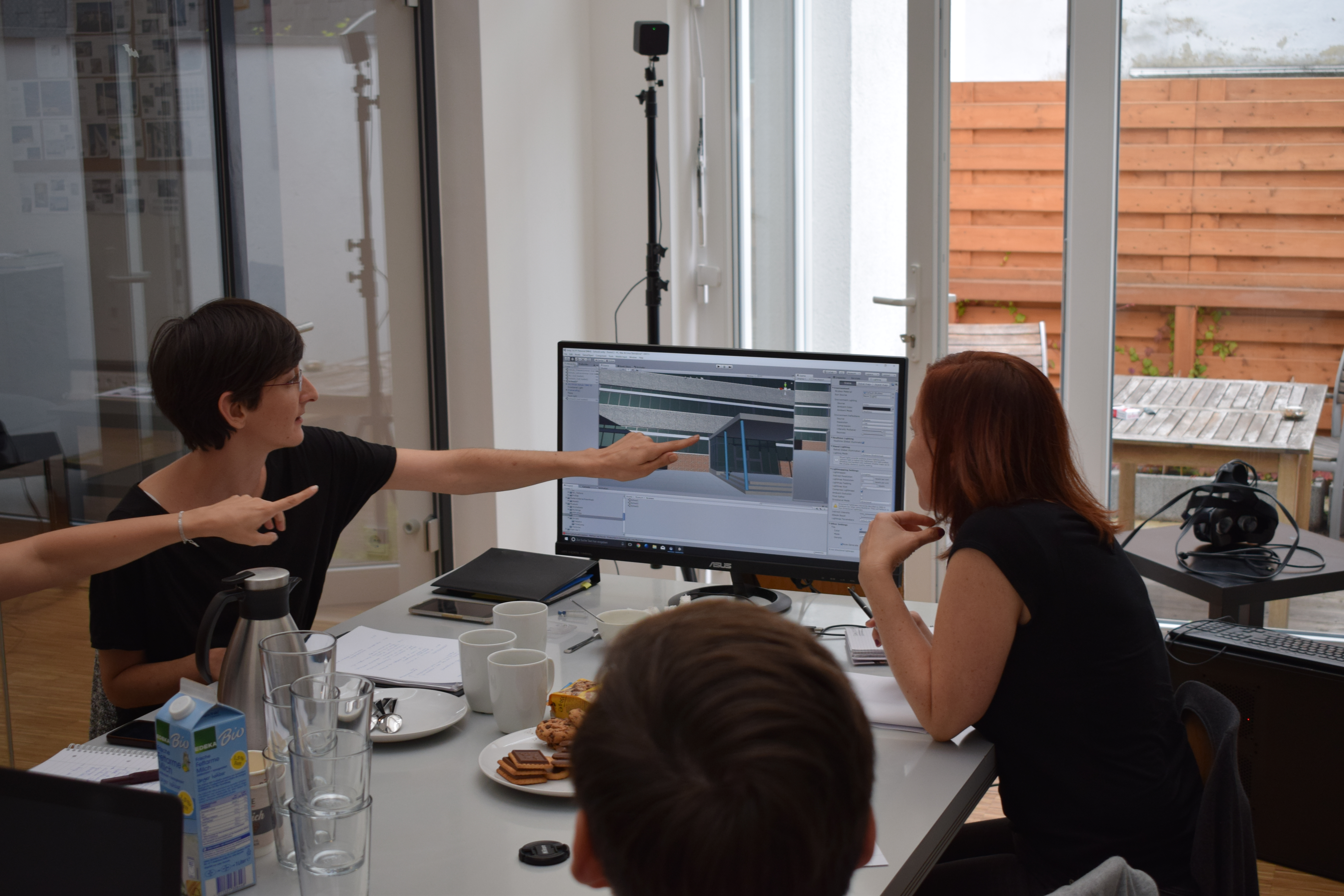
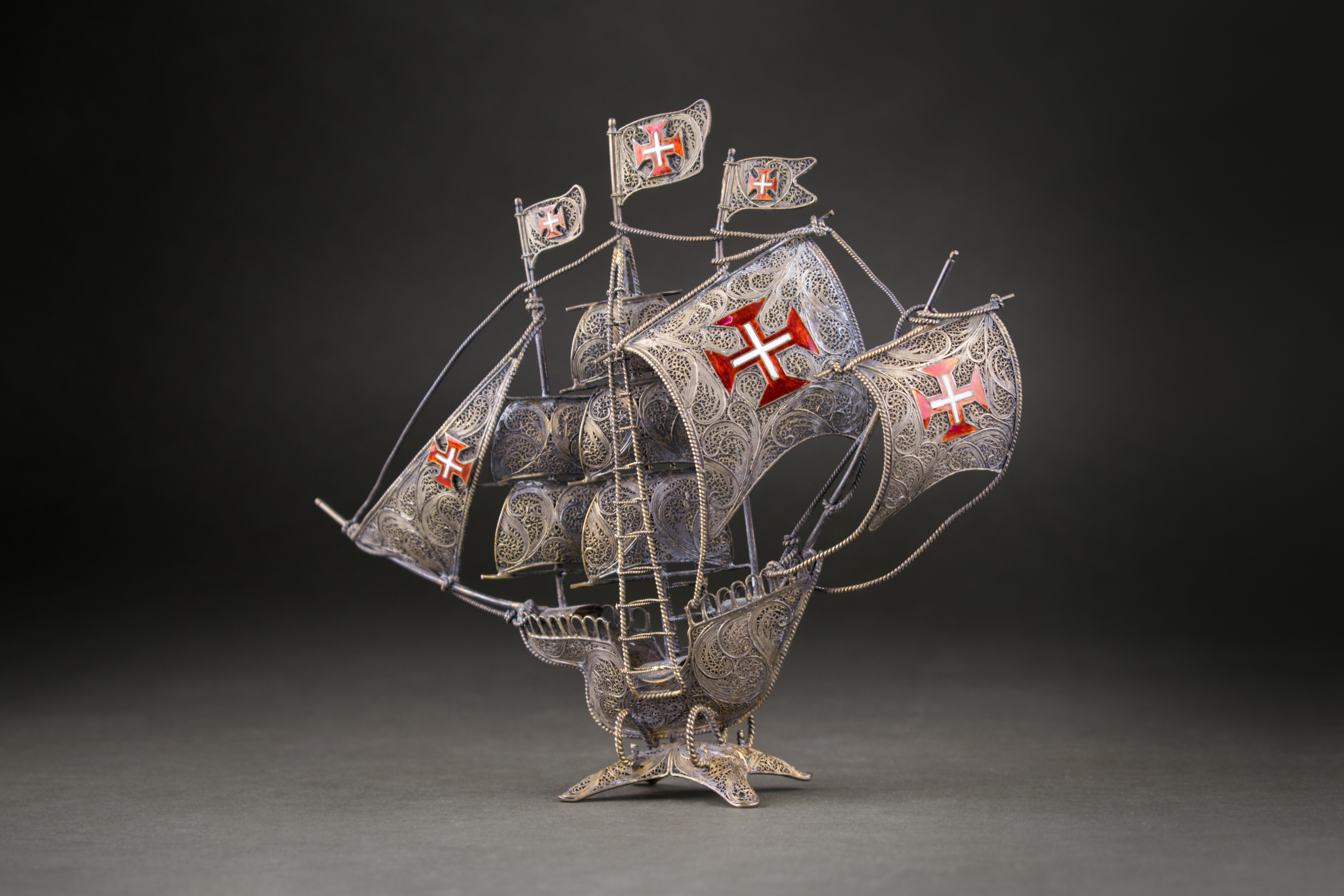
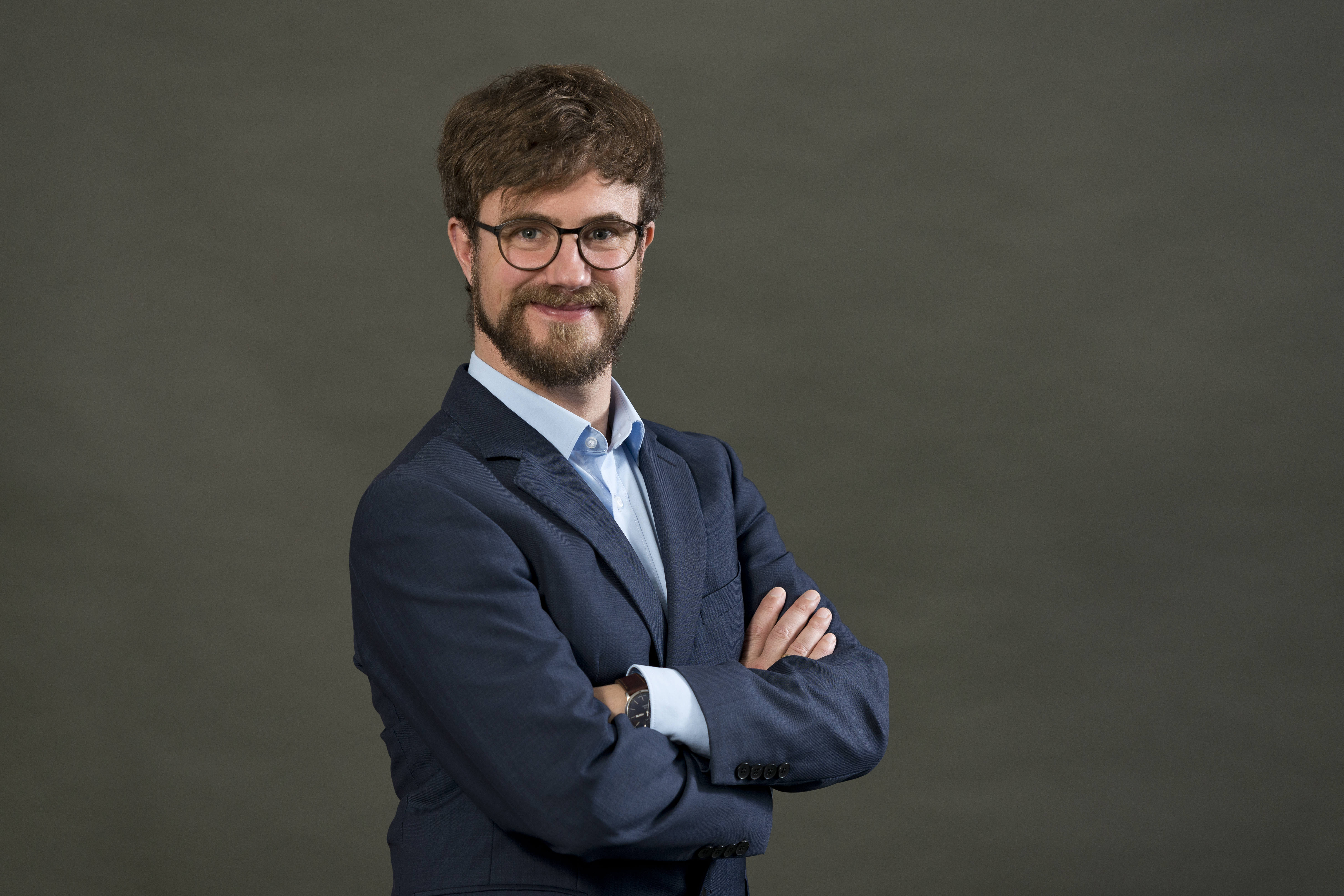
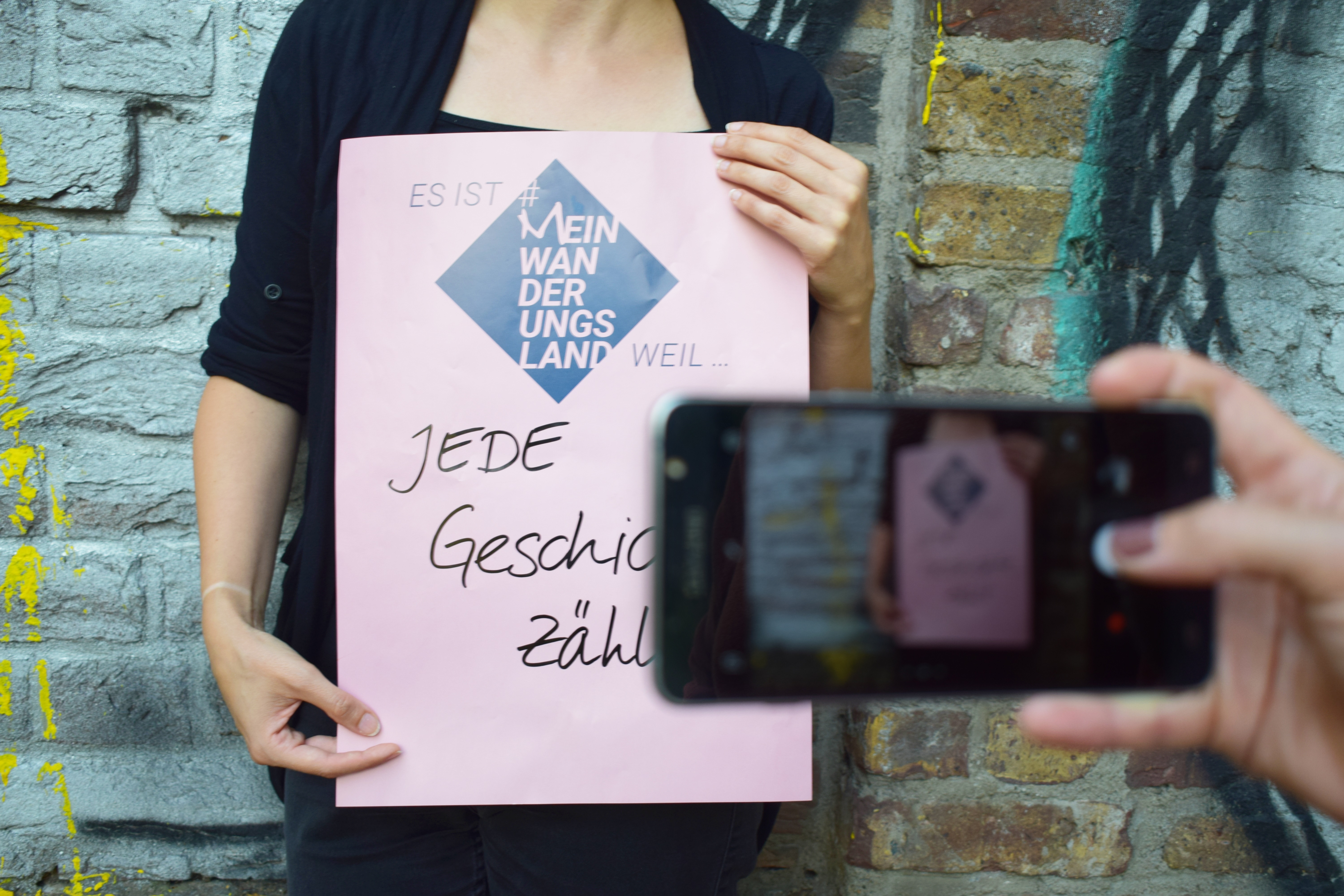
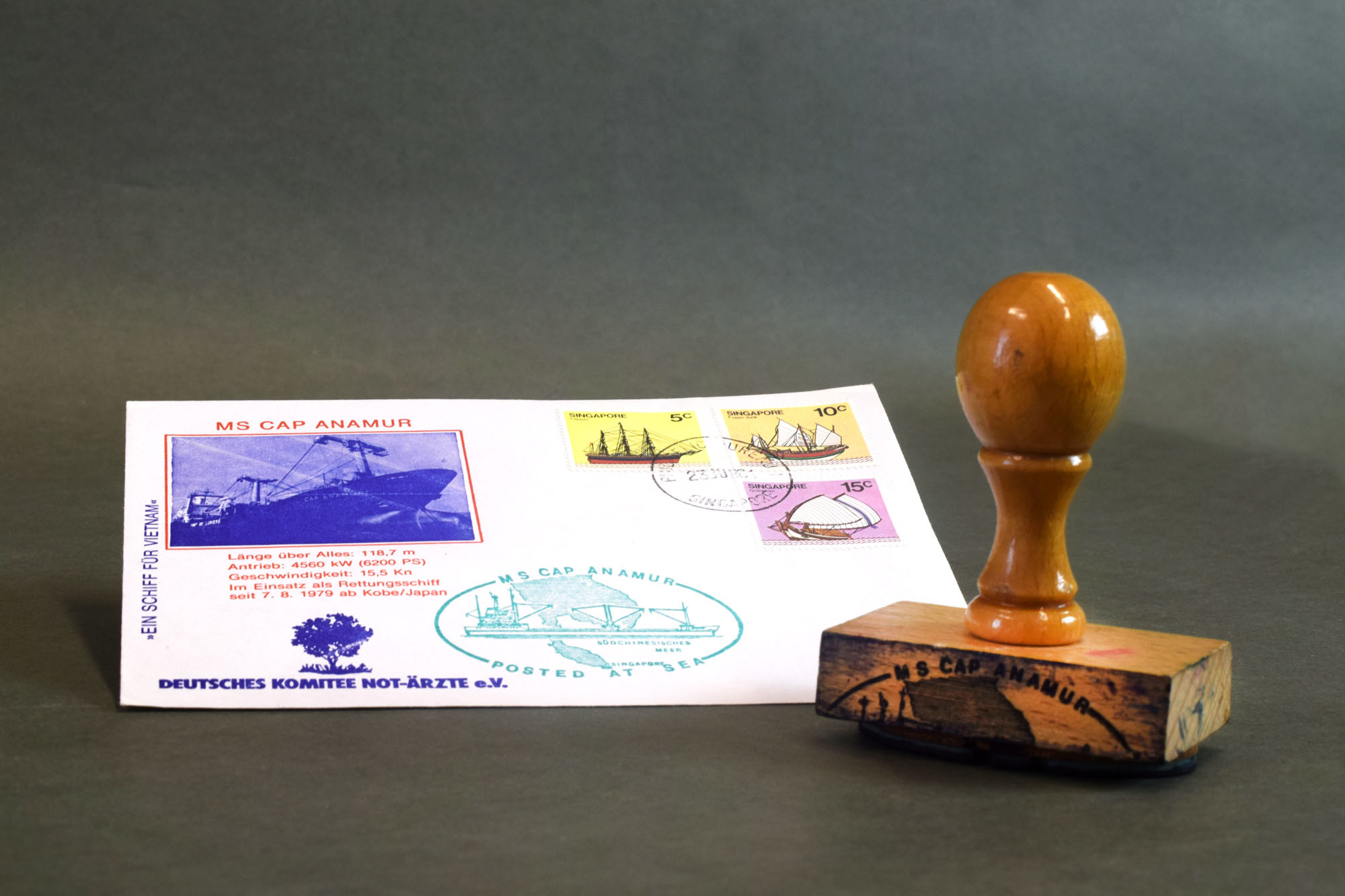
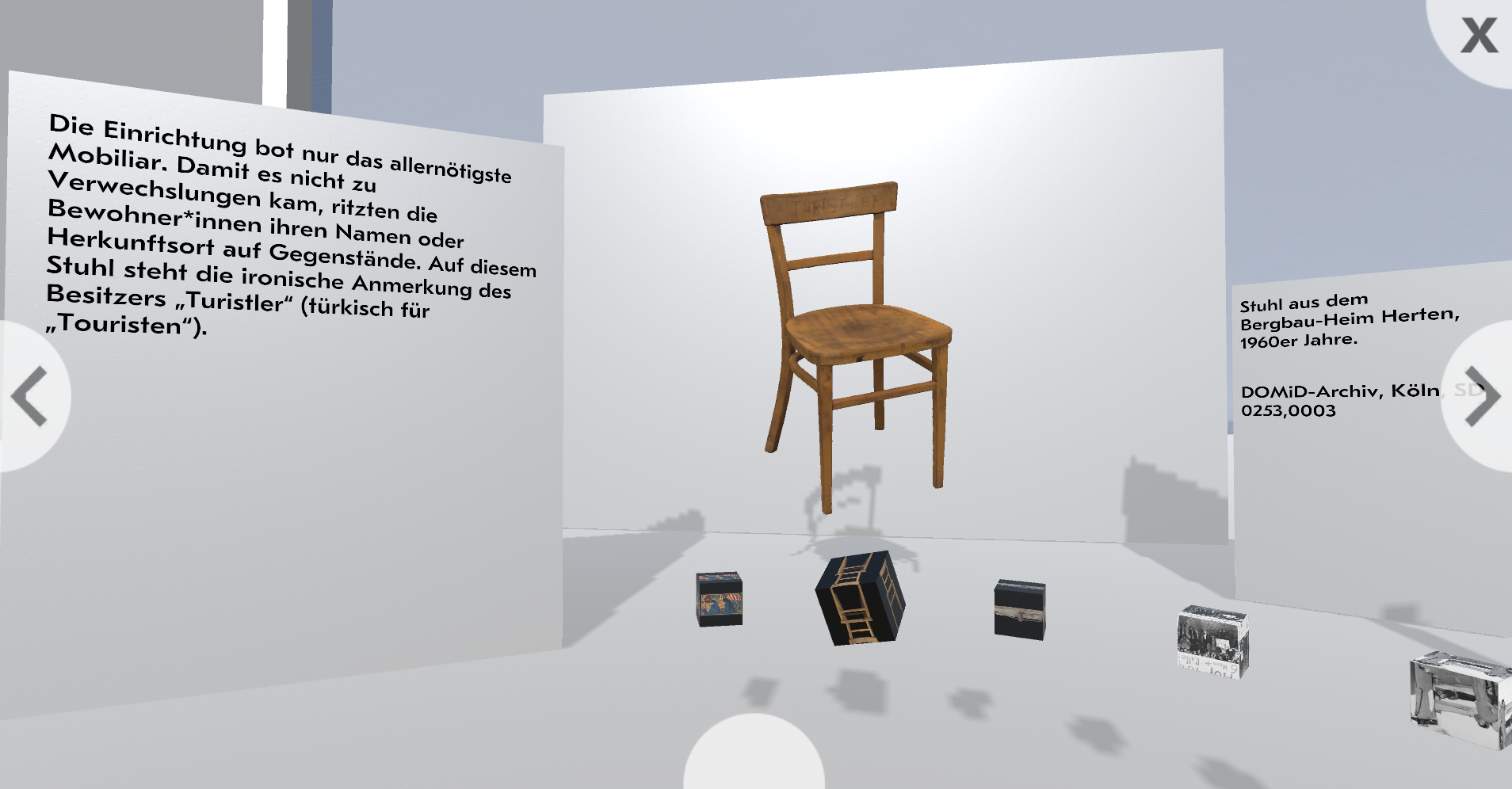
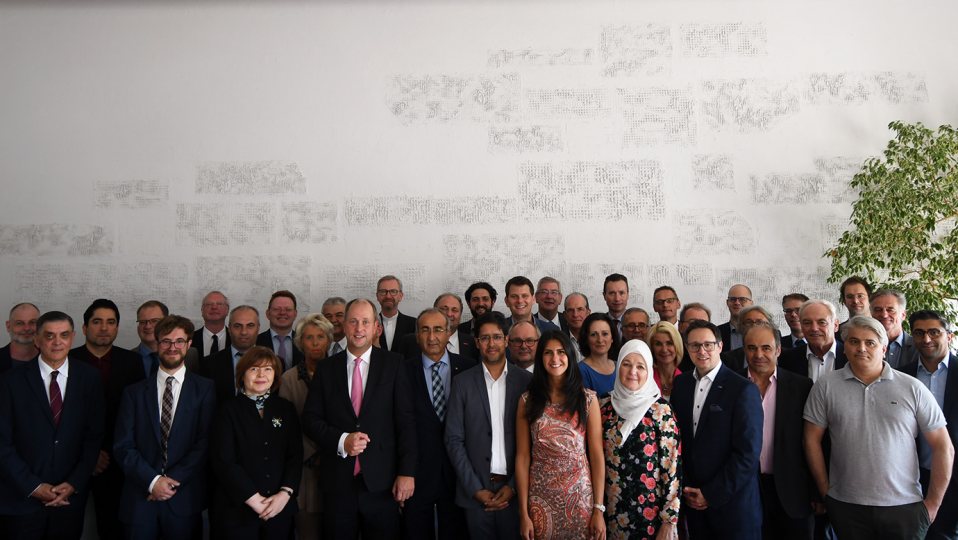
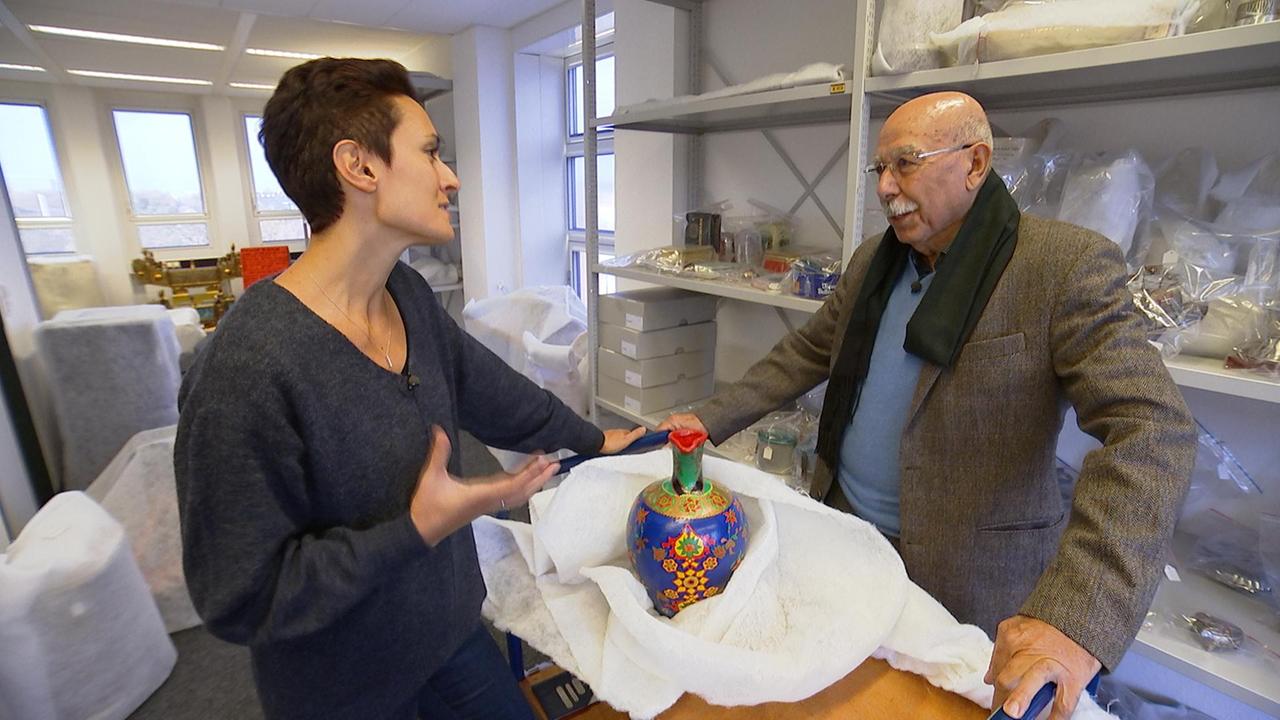
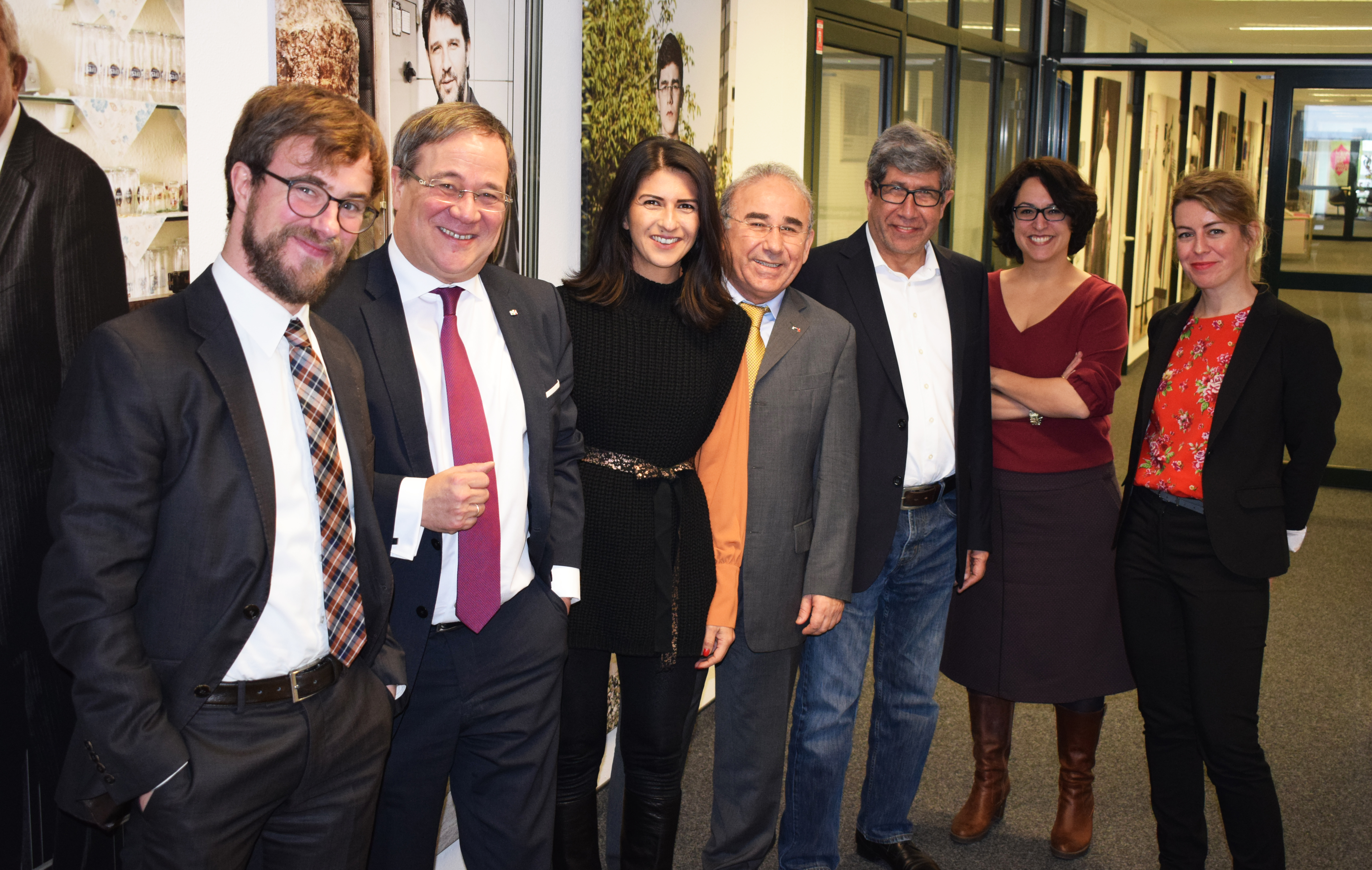
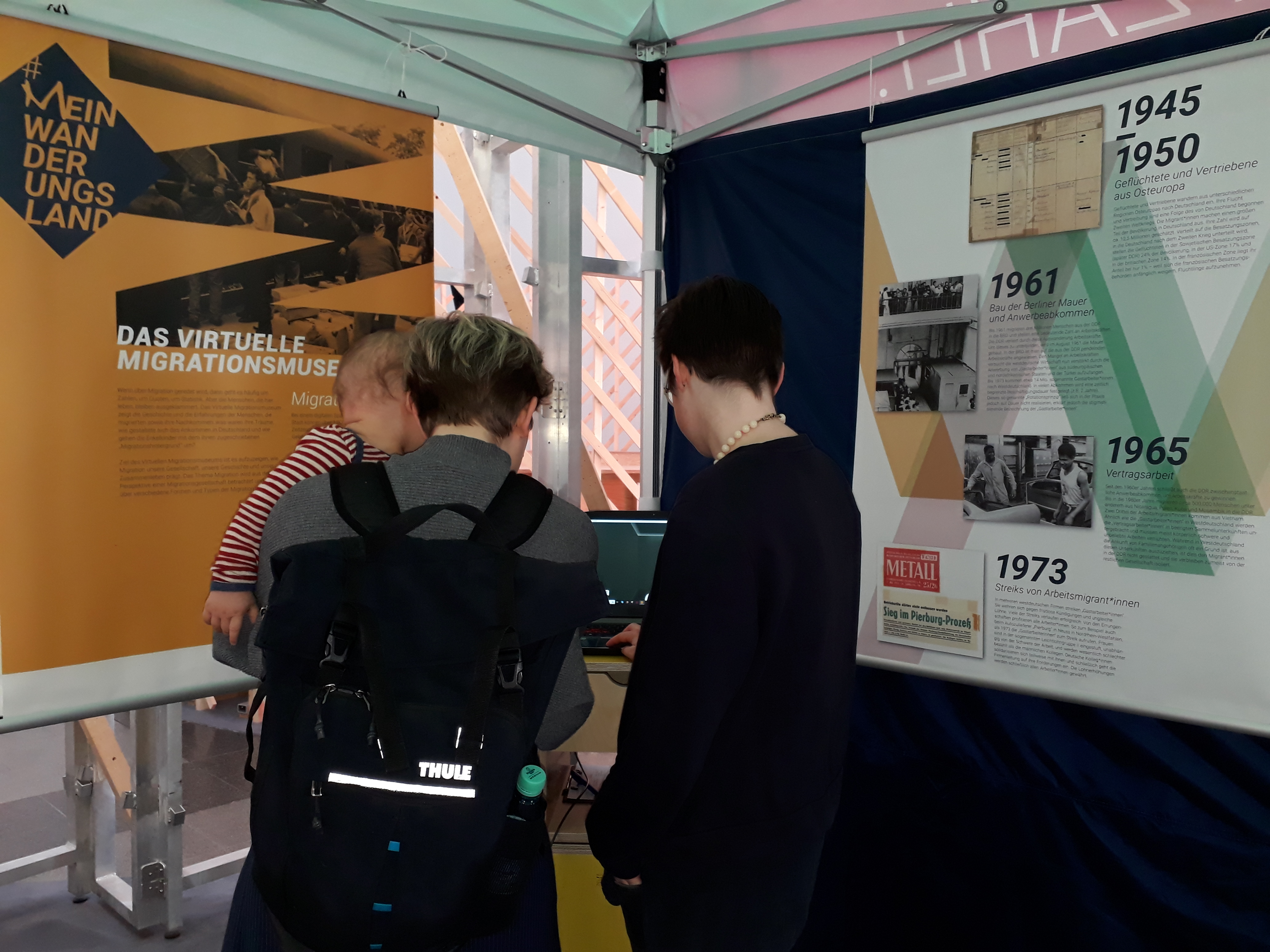
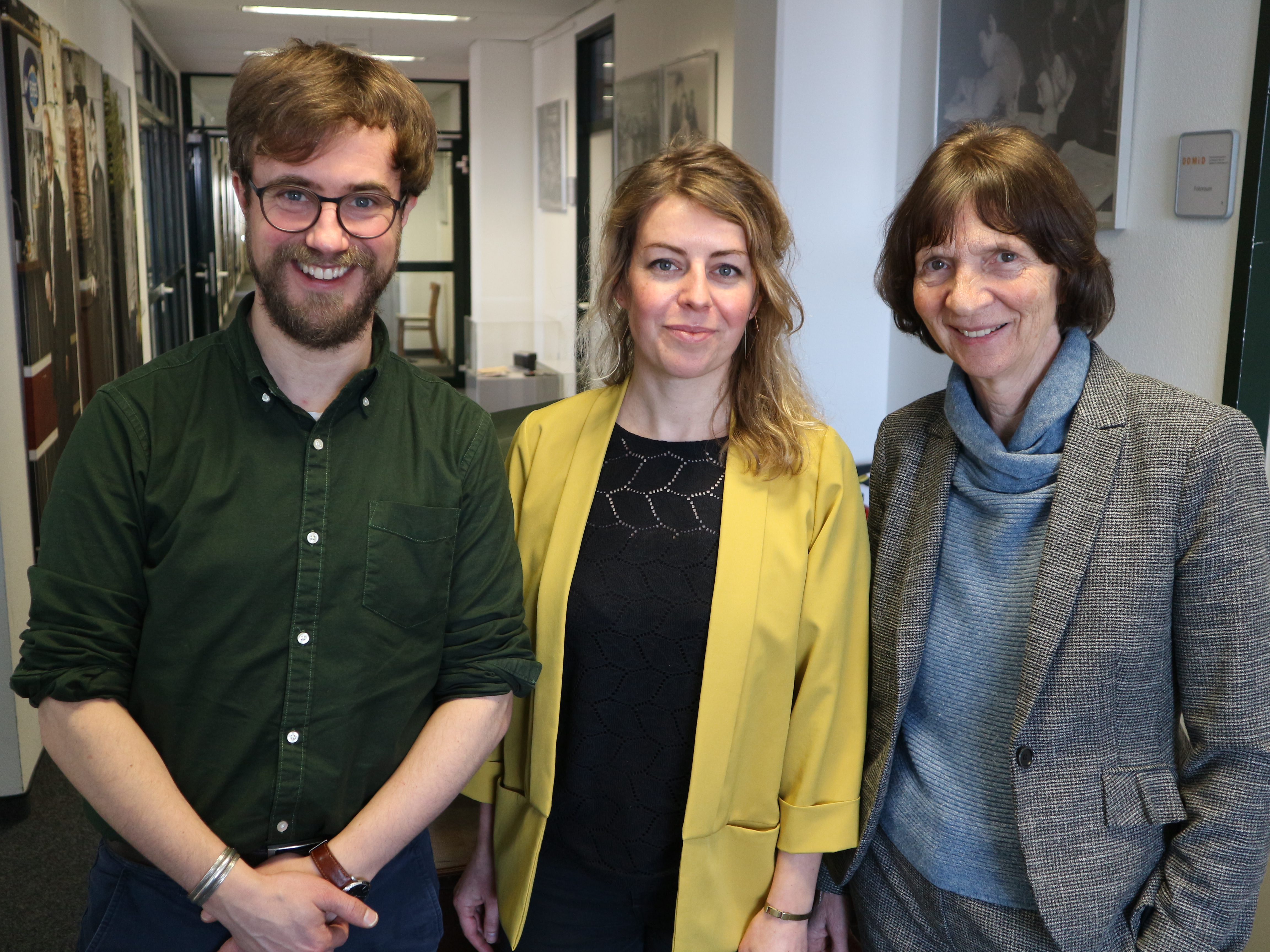
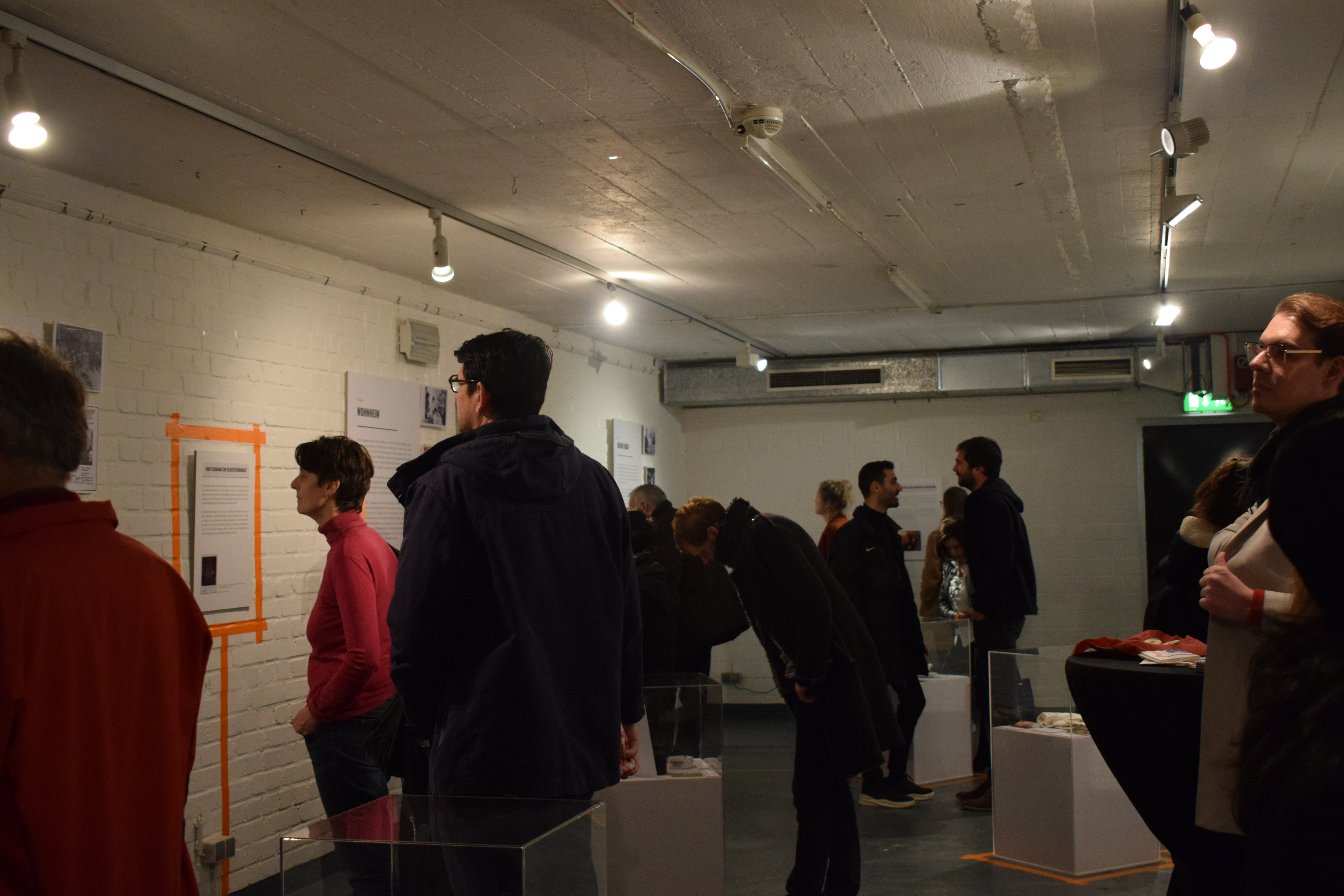
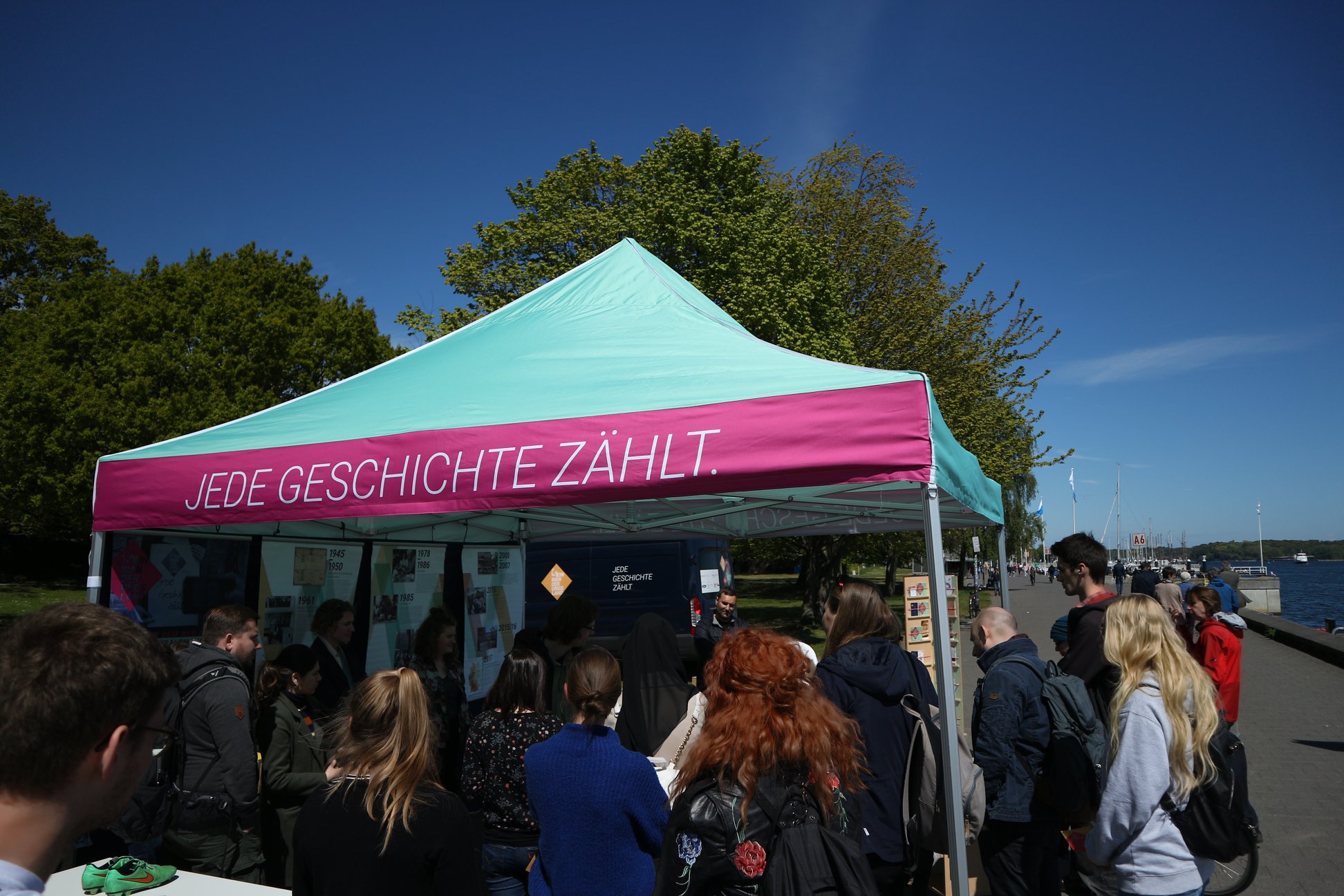
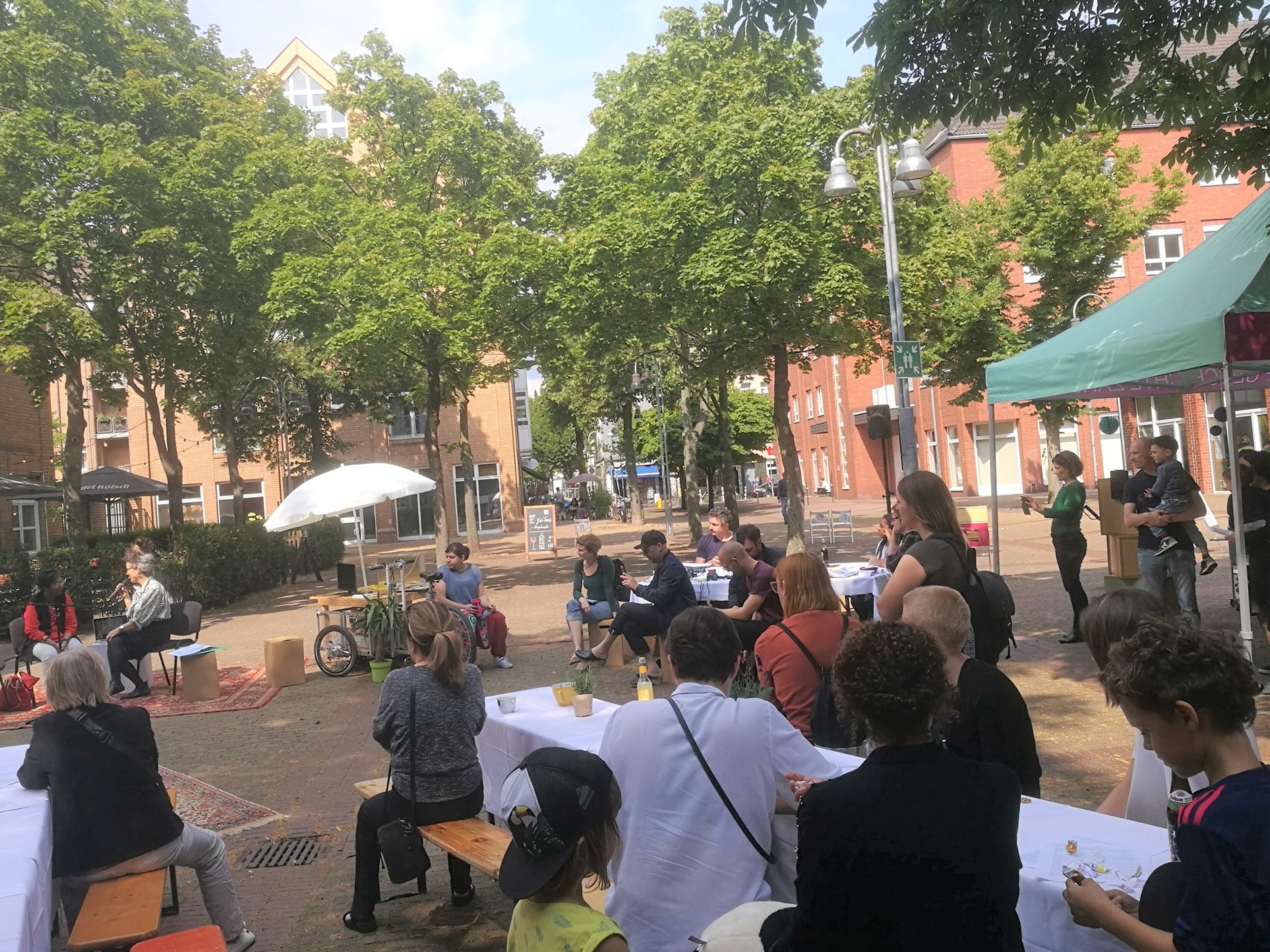
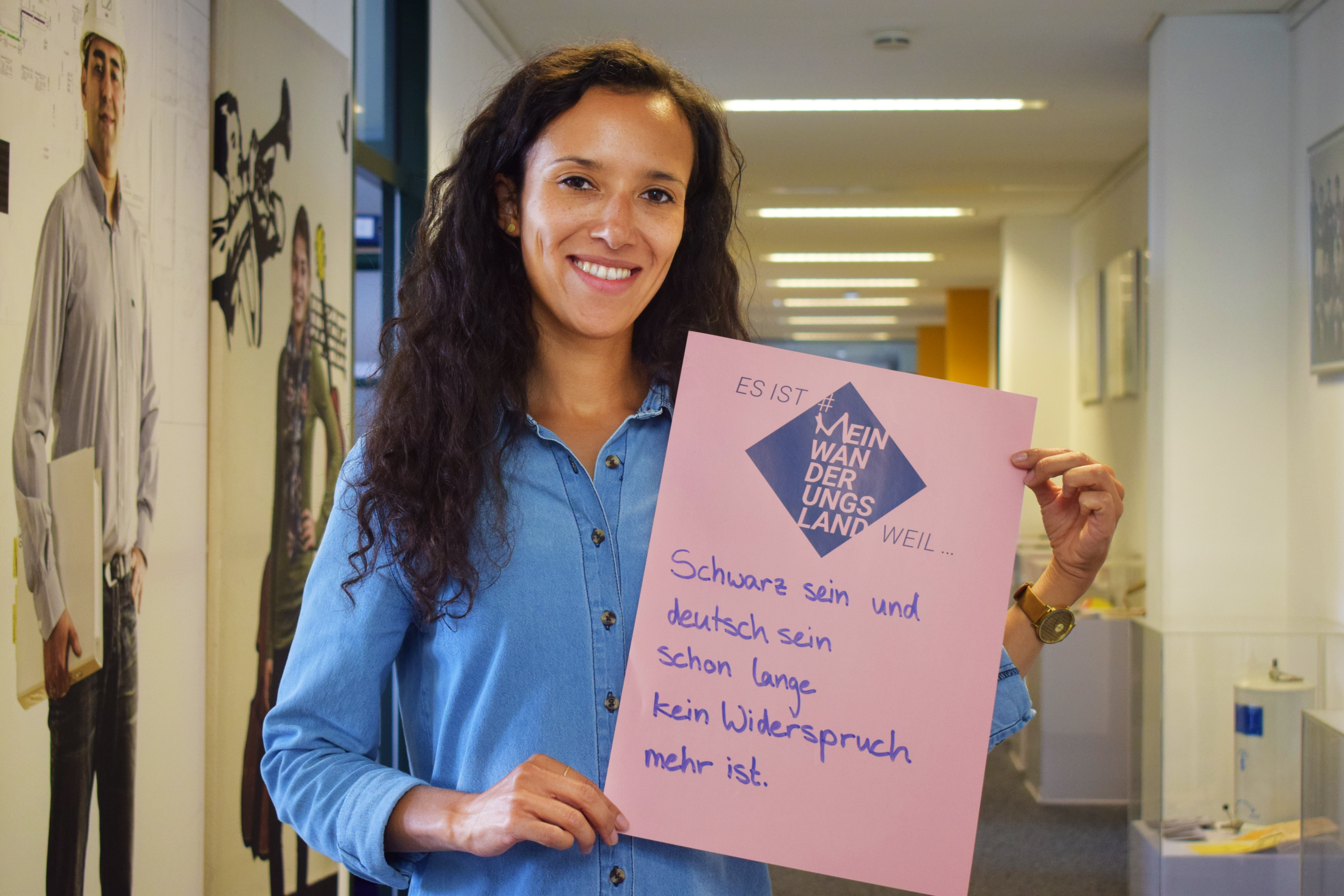
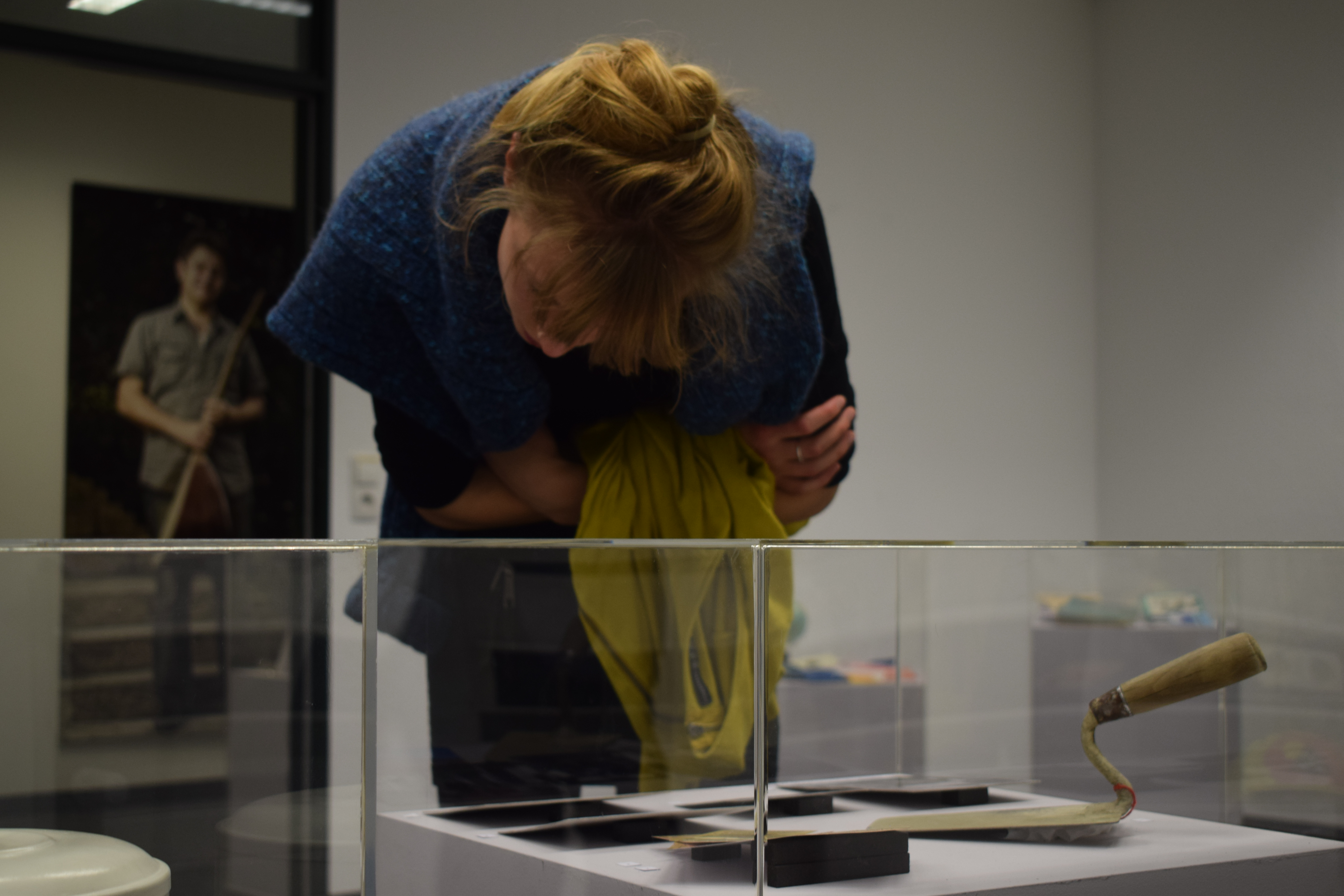
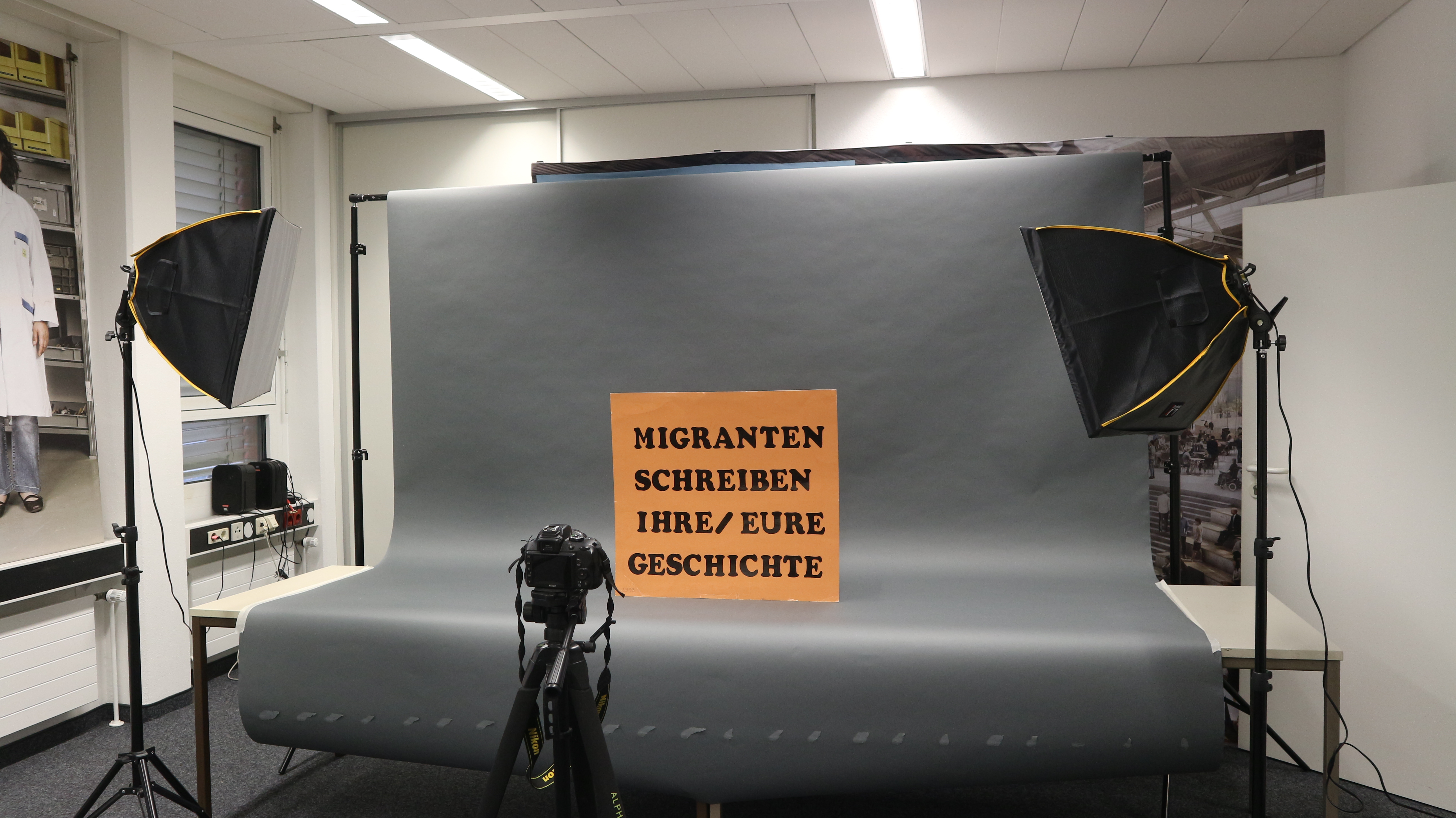
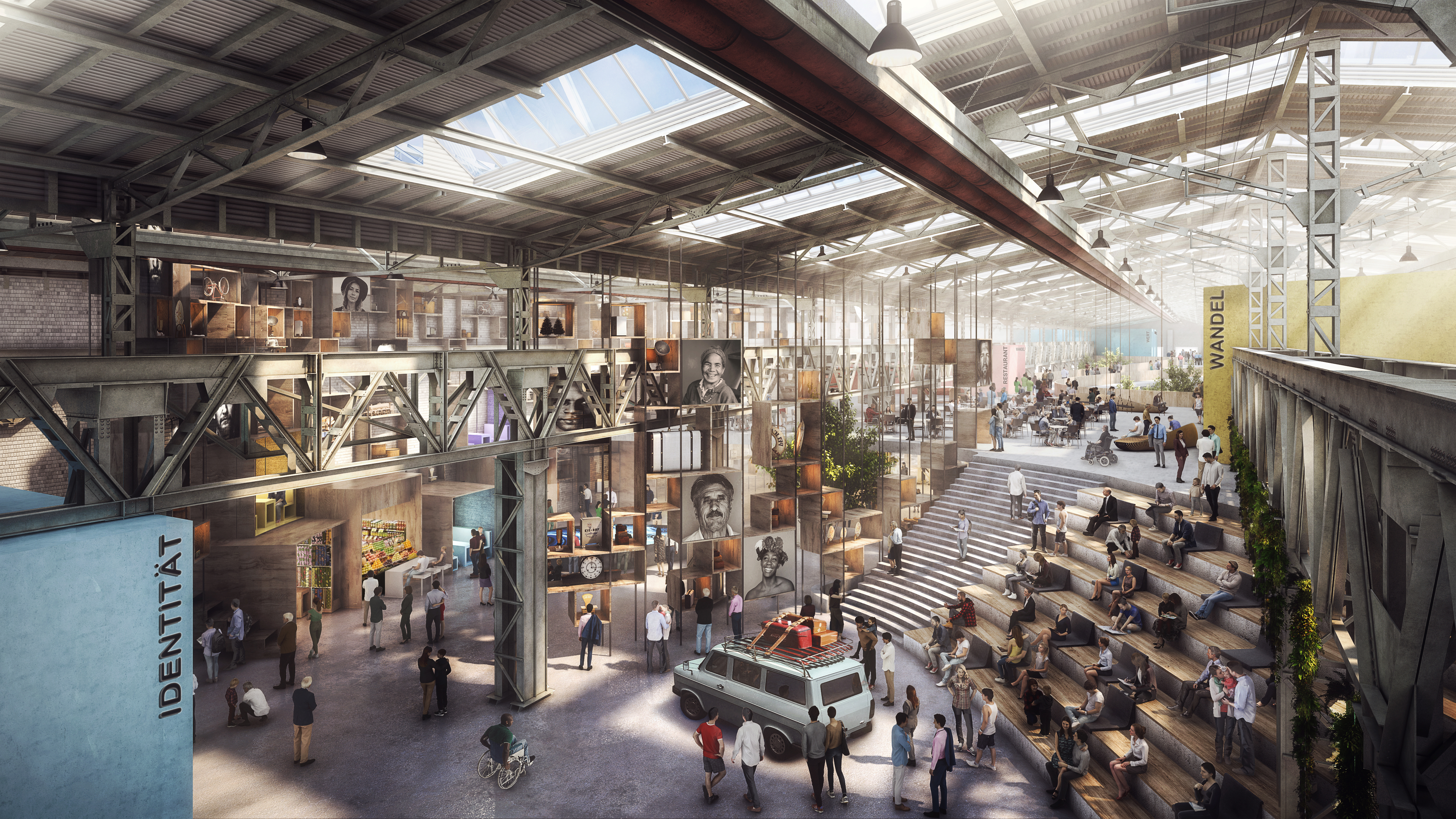
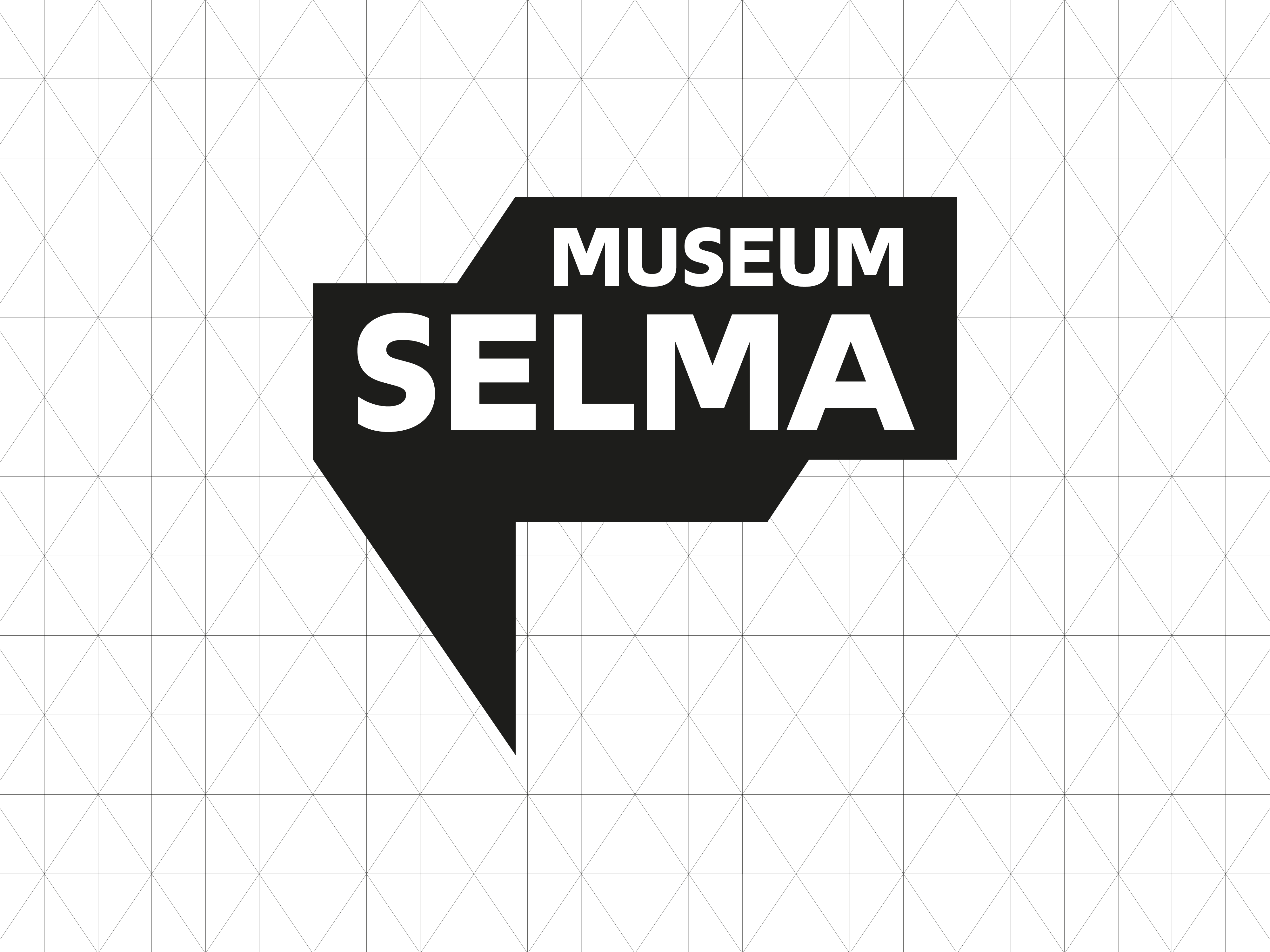
2012: A change of management takes place this year: Aytaç Eryılmaz resigns from his post at his own request. Eryılmaz shaped the association for more than two decades, published numerous essays and books, organized exhibitions, and was instrumental in developing the vision of the Migration Museum, to which he was deeply committed. He was succeeded by historian, publicist and cultural manager Arnd Kolb, who had previously worked as events manager at the Mercedes-Benz Museum. Photo: DOMiD Archive, Cologne
2012: On the occasion of the 40th anniversary of the so-called "Ford strike" DOMiD published the first volume of its own publication series. The book by Jörg Huwer, entitled "Gastarbeiter" im Streik - Die Arbeitsniederlegung bei Ford Köln im August 1973 (Guest Workers on Strike - The Work Stoppage at Ford Cologne in August 1973), vividly and impressively describes the course of events and the background to the work stoppage. For the first time, the context of the strike is clearly shown, beyond all previous patterns of interpretation. Photo: DOMiD Archive, Cologne
2014: In March 1964, Germany and Portugal signed a recruitment agreement, and in September 1964, Armando Rodrigues de Sá, the millionth "guest worker," arrived in the Federal Republic. On his arrival in Cologne-Deutz, he received a motorcycle as a gift. The picture went down in the history books. On September 13, 2014, various events took place in Cologne to commemorate both events, in which DOMiD participated. After a town hall reception for invited guests, Arnd Kolb hosted a staging at the Deutz train station and spoke at a symposium. On Saturday, Sept. 13, 2014, there was a central day of remembrance in Cologne that also celebrated the conclusion of the 1964 German-Portuguese Anwerbeabkommen. At a reception co-organized by DOMiD at Cologne City Hall, Aydan Özoğuz, Minister of State for Migration, Integration and Refugees, and Rodrigues de Sá's family were present. A commemorative plaque for all immigrants was unveiled at the Cologne-Deutz train station. This was followed by a conference on Portuguese immigration and a cultural festival. Photo: DOMiD Archive, Cologne
2014: "DOMiD macht Schule" (DOMiD goes to school): In the project, which DOMiD carried out as part of an educational partnership with the Käthe Kollwitz School from Leverkusen, seven teaching units on migration and migration history in Germany were developed. The collection of materials can be used as a basis for the thematic complex "German migration history" especially for the subject history of secondary levels I and II of all school types. Photo: DOMiD Archive, Cologne
2014: "Unknown Diversity", an anthology on Korean immigration On the occasion of the 50th anniversary of the signing of the "Recruitment Agreement" between the Federal Republic of Germany and the Republic of Korea, DOMiD published an anthology on Korean migration to Germany together with the Korea Foundation and the Korea Association. Photo: DOMiD Archive, Cologne
2015: DOMiD receives award for diversity: DOMiD was awarded the coveted "Diversity Wins!" prize in the historic City Hall of Cologne. This is awarded to Cologne-based companies and organizations that recognize, promote and utilize the diversity of their employees. The jury recognized, among other things, that DOMiD's work is characterized by a multi-perspective approach, because migration history can only be grasped with reference to diverse perspectives. This is reflected in the personnel concept, which ensures a balanced ratio of employees with and without migration experience. Photo: DOMiD Archive, Cologne
2015: On August 29 and 30, 2015, DOMiD was represented with a specially designed mobile exhibition unit at the Federal Government's Open Day. Prominently placed right next to the booth of Aydan Özoğuz, the Minister of State for Migration, Refugees and Integration, members of the board and the office together were able to inspire thousands of visitors* about DOMiD's project. Photo: DOMiD Archive, Cologne
2015: On December 8, 2015, the exact founding date, DOMiD celebrated its 25th anniversary. DOMiD invited all members, friends, former employees and companions. It was a colorful evening with many highlights. The deputy mayor of Cologne, Elfi Scho-Antwerpes, and State Secretary Thorsten Kluthe from the Ministry of Labor, Integration and Social Affairs (MAIS) of the State of North Rhine-Westphalia praised DOMiD for its work. The board gave an overview of DOMiD's history and cabaret artist Fatih Çevikkoluh provided artistic entertainment together with the Estrada Fado Group. Another highlight was the tribute to founding member and former long-time executive director Aytaç Eryılmaz. Photo: DOMiD Archive, Cologne
2016: "Invisible. Vietnamese Migration in and to Germany", the third volume of the "edition DOMiD" again gave greater attention to a facet of migration history that had previously received little attention. The impetus for the volume, which appeared in the first half of 2017, came from the German-Vietnamese community. DOMiD realized the book project together with the Friedrich Ebert Foundation. Photo: DOMiD Archive, Cologne
2016: SILA YOLU - the mobile exhibition in Berlin was created in 2016. The audiovisual installation "SILA YOLU - Holiday Transit to Turkey and Narratives of the Highway" had a very good start in Berlin on September 23. The project space bi'bak from Berlin-Wedding and DOMiD presented SILA YOLU (engl.: Heimatweg), a mobile exhibition at various locations in Berlin until October 9, 2016. Locations and dates for film evenings can be found on the website: www.silayolu.bi-bak.de. Photo: DOMiD Archive, Cologne
2016: The next step: Feasibility study completed: Supported by the Ministry of Labor, Integration and Social Affairs (MAIS) of the State of NRW and the NRW Foundation, DOMiD commissioned a feasibility study. The official publication took place in spring 2018. Prior to this, DOMiD had already presented first impressions and sketches at the Federal President's Citizens' Festival. Photo: DOMiD Archive, Cologne
2017: Refugee Stories Collection- every story counts! An English title, three words and a simple idea: to collect the stories of those who have fled to North Rhine-Westphalia since mid-2015. With the "Refugee Stories Collection" project, DOMiD thus documented the situation of these people in North Rhine-Westphalia. The backgrounds, causes and circumstances of their flight were investigated, as well as the current living conditions since their arrival in Germany. The change of perspective was particularly important: three research assistants with their own flight stories conducted interviews, collected objects and took photos. The project was funded by the Ministry of Labor, Integration and Social Affairs (MAIS) of the state of North Rhine-Westphalia. Photo: DOMiD Archive, Cologne
2017: The Virtual Migration Museum: Thanks to a grant from the Federal Agency for Civic Education (BpB), the Virtual Migration Museum could be realized! In addition, DOMiD again received a grant from the Landschaftsverband Rheinland (LVR). The team also underwent a change - permanent members since 2017 were Fatma Uzun and Bengü Kocatürk-Schuster. Photo: DOMiD Archive, Cologne
2017: DOMiD's stock broke the sound barrier of 150,000 this year! The ship stands as a symbol of mobility, the departure, the journey, the arrival and the return. The present object of a Portuguese caravel contains all these moments. It tells the story of a Portuguese man who did not have the opportunities to study shipbuilding in the 1960s. Instead, he went to Germany as a migrant worker. Like so many, he extended his stay year after year. His mother wanted to remind him of his "big dream" by giving him this ship as a gift and thus encourage him to return. The hope was not fulfilled. He stayed and returned only after his retirement. However, when he heard that his niece was also migrating to Germany in 2007, he gave her this precious object to take with her on her journey. That one day she would return again. For DOMiD, this object is the 150,000th in its collection, which is unique in Germany. Photo: DOMiD Archive, Cologne
2017: Change of managing director: Arnd Kolb leaves, Dr. Robert Fuchs becomes new managing director. Previously, Dr. Fuchs, a historian, worked as a project manager at DOMiD since january 2013. Photo: DOMiD Archive, Cologne
2017: #Meinwanderungsland: Every story counts, Germany is #Meinwanderungsland. DOMiD launched a project in December 2017 that collected and shared stories of the migration society in Germany. On www.meinwanderungsland.de, everyone - whether with or without their own migration experience - could share their stories. In addition, a mobile exhibition toured 24 cities on a tour through all 16 German states. The goal was to de-dramatize current debates and contribute to an inclusive culture of remembrance. The project was funded by the Minister of State for Migration, Refugees and Integration Annette Widmann-Mauz. Photo: DOMiD Archive, Cologne
2018: This year, the estate of Rupert Neudeck arrived at DOMiD: a unique collection. Rupert Neudeck and his wife Christel campaigned for medical care for refugees on the high seas with the support of personalities such as Heinrich Böll. The crew of the freighter Cap Anamur around Rupert Neudeck saved the lives of more than 10,000 so-called boat people and brought them to Germany. The predecessor association Ein Schiff für Vietnam was founded in 1979 in response to the great need of Vietnamese refugees in the South China Sea. The freighter was later to give the association its name, so that the aid organization was renamed Cap Anamur / Deutsche Not-Ärzte e.V. in 1982. Photo: DOMiD Archive, Cologne
2018: With the publication of the "Virtual Migration Museum" on 02.07.2018, the history of migration in Germany receives an independent museum in virtual space. DOMiD has thus created a digital learning offer in which the history of migration in Germany can be experienced interactively. Visitors to the museum enter a fictitious urban setting with various buildings and can learn about interviews with contemporary witnesses as well as over 1,000 digitized objects and their history. The Virtual Migration Museum is open around the clock at: www.virtuelles-migrationsmuseum.org. Photo: DOMiD Archive, Cologne
2018: DOMiD Managing Director Dr. Robert Fuchs was appointed as one of 44 members of the Integration Advisory Council of the State of North Rhine-Westphalia. Together with the state government, the advisory board developed the "Integration Strategy 2030". Photo: State of NRW / MKFFI
2018: This year ZDFinfo visited DOMiD! On November 9, the contribution: "Forum on Friday: How was it back then?" with Nazan Gökdemir appeared. Two of our lenders and founding member Ahmet Sezer told impressive stories around their time of arrival in Germany using personal items from the collection. We thank them for their visit. Photo: DOMiD Archive, Cologne
2019: The Minister President of North Rhine-Westphalia, Armin Laschet, visited the DOMiD office at the beginning of the year together with the NRW State Secretary for Integration, Serap Güler. He informed himself about DOMiD's work and especially about the state of planning for the House of Immigration Society. Photo: DOMiD Archive, Cologne
2019: This year also describes the successful tour start of #Meinwanderungsland in Düsseldorf. The #Meinwanderungsland exhibition began its tour of Germany with its first tour stop in Düsseldorf at the NRW State Parliament and K20. The Federal Government Commissioner for Migration, Refugees and Integration Annette Widmann-Mauz, NRW State Secretary for Integration Serap Güler and DOMiD Managing Director Dr. Robert Fuchs opened the tour with a press conference in the state parliament. The mobile exhibition traveled to 24 German cities in all federal states and conveyed migration as a part of German history. With the internet campaign #Meinwanderungsland, visitors* simultaneously had the opportunity to help shape the exhibition with film contributions and their own stories. Photo: DOMiD Archive, Cologne
2019: On February 20, 2019 DOMiD received a visit from Prof. Dr. Dr. h.c.. Aleida Assmann. The literary and cultural scholar and Peace Prize winner of the German Book Trade informed herself about the status of the plans for the House of Immigration Society. Photo: DOMiD Archive, Cologne
2019: The special exhibition "Motiv Migration - Kölner Geschichte(n)" was successfully opened on March 16, 2019 in the Kulturbunker Cologne. With the help of objects, photographs and films from the DOMiD collection, the exhibition provided insights into the diversity of Cologne's migration history. The exhibition focused on important places of remembrance such as the Keupstraße, as well as the stories of individual people or organizations. Visitors were also given the opportunity to share their own objects and migration stories. The exhibition in cooperation with the so-called Mülheimer Heimatministerium was on display until April 12, 2019. Photo: DOMiD Archive, Cologne
2019: Since the beginning of February, #Meinwanderungsland has been touring across Germany. In 24 different cities, the team set up the interactive exhibition and storytelling platform, organized workshops and city tours. The goal of the exhibition was to convey migration as a normal case to visitors. Under the hashtag #Meinwanderungsland, many submitted their own photo and video contributions and thus helped shape the exhibition through their own stories. Highlights of the #Meinwanderungsland tour included the opening in the Düsseldorf state parliament as well as workshops and events in Mannheim, Erfurt, Dresden, Magdeburg, Bremen and Berlin. The conclusion of the #Meinwanderungsland tour in Hamburg with the concert of Esther Bejarano and the Microphone Mafia was also particularly nice. Photo: DOMiD Archive, Cologne
2019: Spread over several weeks and locations, the Academy of World Arts Cologne in cooperation with DOMiD carried out the project "Memory Lab". On July 13, 2019, it was finally time for DOMiD to host the "Assembly of the Many" as part of the Memory Lab in front of the premises in Ehrenfeld. The lively participation in the discussions around the guiding question "In which society do we actually want to live?" showed how important it is to tell history from many perspectives. Photo: DOMiD Archive, Cologne
2019: After the successful tour in 2019, DOMiD received a commitment for further funding from the Federal Government Commissioner for Migration, Refugees and Integration, Annette Widmann-Mauz. The historian Bebero Lehmann took over the project management. She brings together migration, colonial and climate history and is convinced that more changes in perspective are needed so that people in this country finally realize that Germany has always been #Meinwanderungsland. Photo: DOMiD Archive, Cologne
2019: For the first time DOMiD opened its depots and magazine rooms as part of the Museum Night Cologne! Photo: DOMiD Archive, Cologne
2019: In order to remember the history of the association DOMiDs itself, the project "History of the association" started in May 2019. Ceyhun Kara has been working on the documentation and systematic development of the association's archive since then. Manuel Gogos, freelance writer, exhibition organizer and former employee of DOMiD is currently writing down the history of the association. He and Ceyhun Kara have combed through the association's archives and unearthed remarkable stories. The book "Memory of the Migration Society" is expected to be published by transcript Verlag at the end of July 2021. Photo: DOMiD Archive, Cologne
2019: The House of the Immigration Society is coming! On Thursday, Nov. 14, 2019, the Budget Committee of the Bundestag included 22.13 million euros in the federal budget for the creation of the "House of Immigration Society." The state of NRW also put the same amount in the state budget. Based on the nationwide unique collection of DOMiD on the history of migration in Germany, the central migration museum can now be created. Photo: DOMiD Archive, Cologne
2024: The working title “House of the Immigration Society” is replaced by a new name: Museum Selma. The name Selma comes from the Celtic word Anselm and means “beautiful view”. In Arabic, it stands for peace and harmony. Selma is a common female first name in many countries around the world and, as a museum name, strengthens the female perspective on migration.